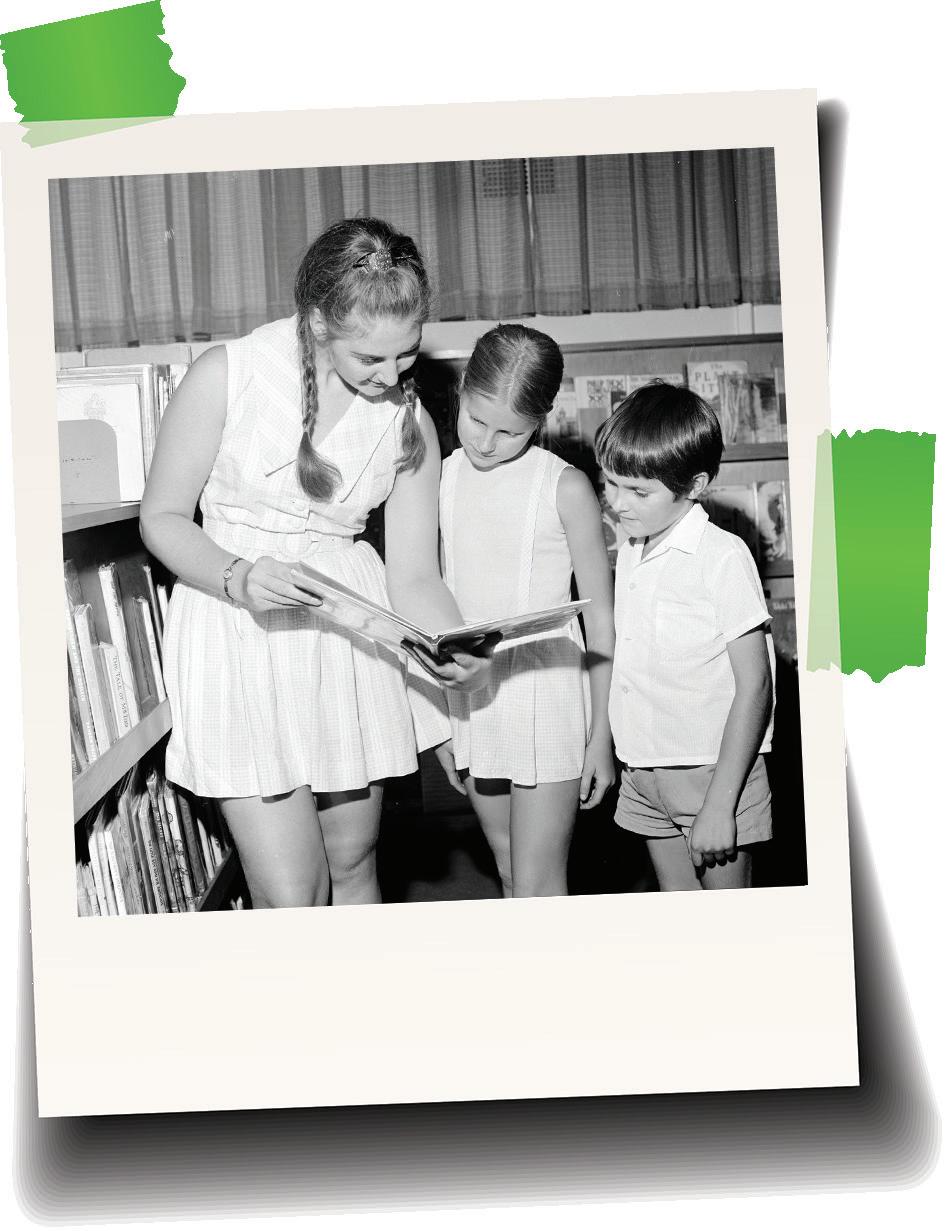
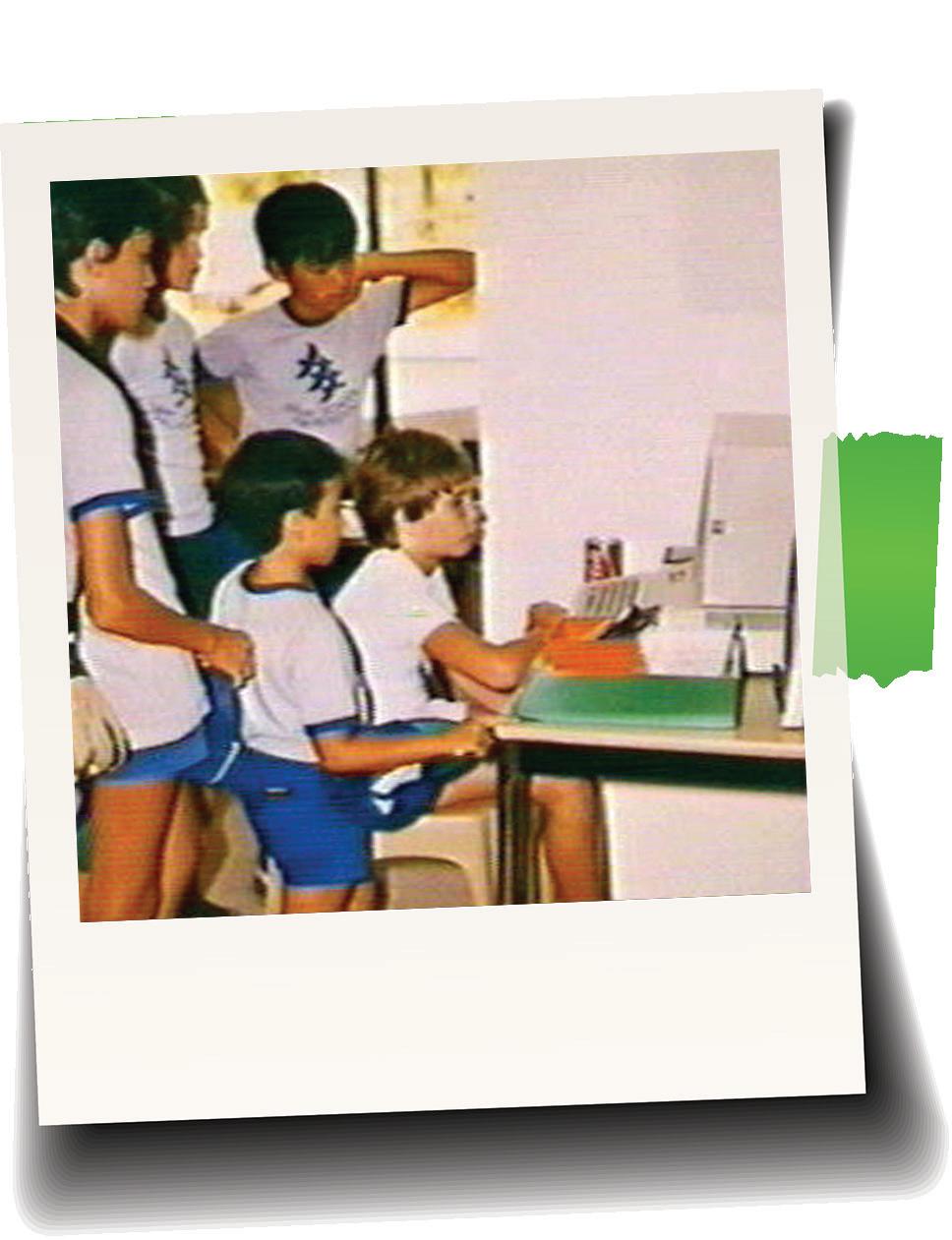
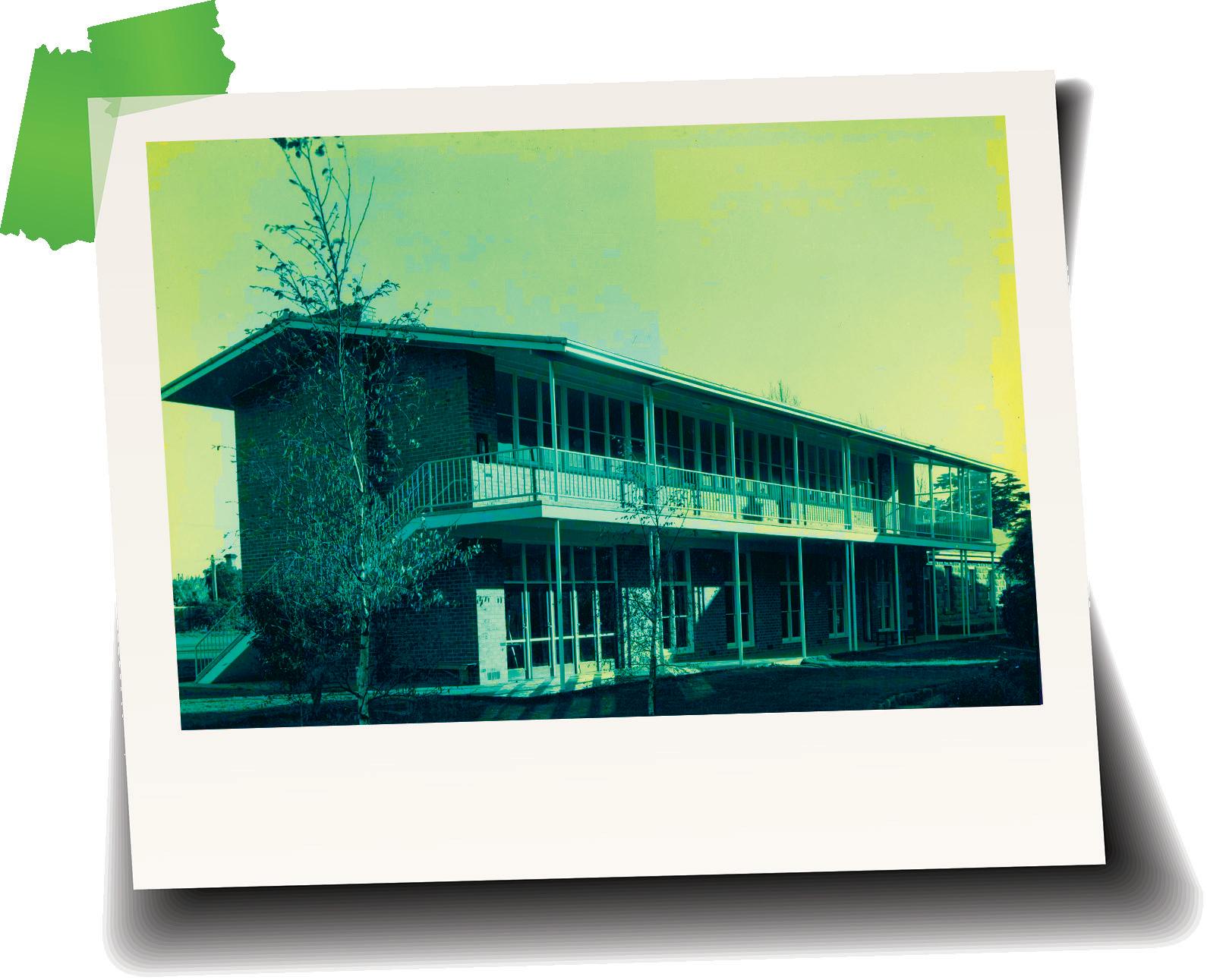
The magazine for the library and information sector Volume 44 | Issue 3 Celebrating new books in First Nations languages
queer readers is not always accessible
Connecting

ALIA is the peak body for the library and information profession in Australia, representing professionals and institutions across every sector. 3 Build your professional networks, connect with others and play a part in ongoing advocacy. 3 Free professional learning to your inbox every month with CPD Digest. 3 Stay up to date with the industry through INCITE magazine, enewsletters and reports. 3 Members have free access to over 200 ProQuest ebooks on Library and Information Science topics. 3 Find out about jobs first in our weekly RecruitLIS enewsletter. 3 Receive member discounts for ALIA’s major national conferences, symposiums and ALIA Training. Join today at alia.org.au/membership 1800 020 071 | membership@alia.org.au JOIN ALIA TODAY! 5,000 Members are already enjoying the benefits.
Editor: Liz Bradtke incite@alia.org.au

Design: Coretext www.coretext.com.au
Advertising: Liz Bradtke incite@alia.org.au
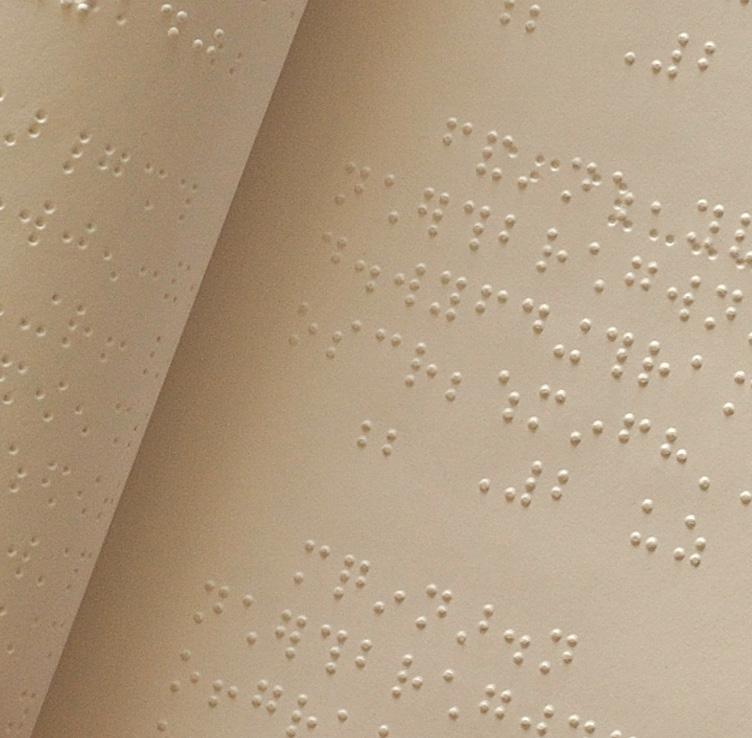

Events: Zola Madison zola.madison@alia.org.au
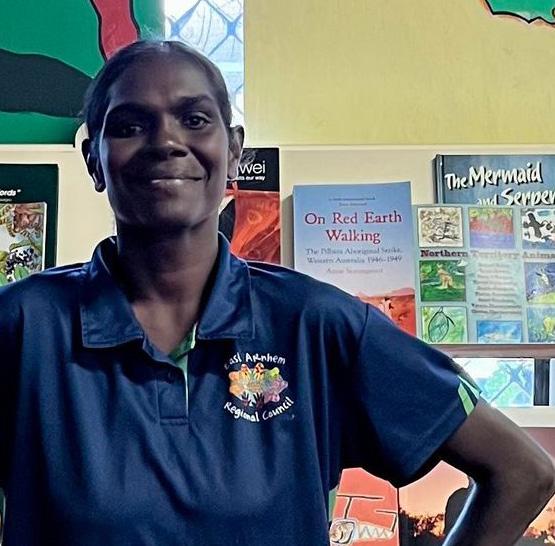
ALIA EXECUTIVE Cathie Warburton, CEO cathie.warburton@alia. org. au
Kylie Fiddy, Chief Operating Officer and Company Secretary kylie.fiddy@alia.org.au
Zola Madison, Director of Conferences and Events zola.madison@alia.org.au
Trish Hepworth, Director of Policy and Education trish.hepworth@alia.org.au
Cover: The Library, The Hermitage, Church of England Girls’ Grammar School, Geelong, VIC, 1950. By Wolfgang Sievers, State Library Victoria (left).
Children from Gray School playing computer games at Palmerston Public Library. Library & Archives NT (right). Woman showing a book to two children, State Library of Victoria (top).
Contents | INCITE Magazine 3 CONTENTS Columns From the editor 4 From the president 7 Library stories: Mary Laba 8 CPD spotlight: Jacqui Lucas and Gary Lom 10 From the archive 12 INCITE is the magazine of the Australian Library and Information Association. It presents perspectives on issues relating to library and information science. © ALIA 2023 Subscription enquiries subscriptions@alia.org.au Apart from fair dealing for the purposes of research or study, reproduction of this material in any form, for public or commercial use is prohibited without permission from the publisher. Contributors assert their moral rights to be identified as the authors of their works. ALIA ABN 40 090 953 236 ALIA House, 9–11 Napier Close Deakin ACT 2600 PO Box 6335, Kingston ACT 2604 Ph: 02 6215 8222 Fax: 02 6282 2249 enquiry@alia.org.au www.alia.org.au
24 36 38 32 Features For a better future 24 A Tale of Two Libraries: touring Singapore’s network of regional libraries 28 Celebrating new books in First Nations languages 30 Connecting queer readers 32 Mapping the open access landscape in Australasia 36 Digital is not always accessible 38 A sneak peek into the school library: behind the scenes with the team at St Andrew’s Cathedral School 42 ALIA News Conferences 16 ALIA Aboriginal and Torres Strait Islander Expert Advisory Group 19 Advocacy round-up 20 Engaging with local communities about aged care reform 22
Welcome to the third edition of INCITE for 2023.
As many of you will remember, up until this year each edition of INCITE had a unique theme that led to some fantastic editions covering specialisation, trust, creative solutions, thinking global and much more. As part of the recent redesign of the magazine, we removed the themes so that authors could submit articles on any topic of their choosing.
Now that we’re at our third edition for the year, we can start to see the effect of this approach. Rather than suppressing thematic through lines, removing the themes has let shared areas of enquiry emerge organically from the content. When editing this edition, it was exciting to see where interest and momentum is gathering in our sector, recurrent concerns or areas of enquiry, and where common ideas intersect, even across the different library sectors.
Valuing our school libraries
Our ‘From the archive’ feature for this edition is a brief yet illuminating history of school libraries in Australia and the advocacy efforts throughout the 20th century to have them recognised and funded by national and state departments. In the features section, Kathryn Eyre and her team at St Andrew’s Cathedral School take us through ‘a day in the life’ of a school library staff member – whether they be teacher librarians, library coordinators or library technicians. Lastly, school library technician Mary Laba discusses the sheer variety of tasks and professional development opportunities that she has taken up in her role.
It is clear across all pieces that school libraries are spaces filled with dedicated, passionate staff whose work lives are busy and varied but whose history and future is defined by the need for a broader recognition of their value. You can read about ALIA’s efforts in this space in the ‘Advocacy round-up’ on pg 20.
Ensuring accessibility
Two articles in the features section explore the topic of accessibility –one in terms of print disability and the other in terms of open access and its application across the LIS sector. Both pieces underscore how important it is that accessibility of all types is a key consideration for libraries, so as many people as possible can engage with the full breadth of collections – digital or print. As many of you will be aware, ensuring that everyone in the community has access to information and the freedom to read what they wish to read is a pressing concern, particularly as more and more book challenges come to light, so it is no surprise that interest is coalescing around this issue.
By Liz Bradtke Editor
Importance of First Nations books in language
We are lucky enough to have two pieces that celebrate First Nations books in language. The first, written by longtime Indigenous Literacy Foundation volunteer Janet Hutchinson, brings us across all the activities around this year’s Indigenous Literacy Day, which included the launch of three new picture books in Indigenous language. The second, an interview with Milingimbi Community Library officer Jacinta Burukumalawuy Dhamarrandji, is a powerful firsthand account of just how critical it is to have texts in local language in our collections – especially those that cover historical events from a First Nations perspective – to move closer towards true and lasting reconciliation.
Creating safe and special spaces
Lastly, two of our feature articles shine a light on some libraries here and abroad that are catering to the specific needs of their communities through programming and design. Claire Stuckey and fellow members of the Children and Young Adults Section of the International Federation of Library Associations and Institutions (IFLA) recently took a tour of two libraries in Singapore in which LOTE collections, zones for children and teens and toy libraries have been developed in response to community needs. And Lauren Francis of City of Melbourne Libraries reflects on her experience coordinating a monthly book club dedicated to discussing queer books and where participants can share experiences and connect with the queer community.
Seeing these recurring themes and through lines is one of the joys of editorial work and it continues to be a fascinating journey to see what interests you. And of course, this edition still includes our usual ‘Library stories’ and ‘CPD spotlight’ section as well as the latest news from ALIA.
I very much hope that you enjoy reading this edition of INCITE
Liz Bradtke, Editor incite@alia.org.au
4 INCITE Magazine | From the editor
FROM THE EDITOR
Getting Glam with ALIA South Coast
By Rob Thomson
On Friday 21 July at Shellharbour City Library, GLAMAWARRA 2.0 was held. Organised by ALIA South Coast Group, GLAMAWARRA 2.0 is a day of professional development for the Illawarra, South Coast and Southern Highlands Library community. It is designed for any GLAM (galleries, libraries, archives and museums) people – at any stage in their career – to discuss the future of the GLAM industry and how we as GLAM professionals develop our communities both across the professions and within the communities
we inhabit. GLAMAWARRA 2.0 built on last year’s GLAMAWARRA event in presenting a range of speakers from a variety of GLAM institutions in the Illawarra, Shoalhaven, Southern Highlands, Campbelltown and Camden local government areas.
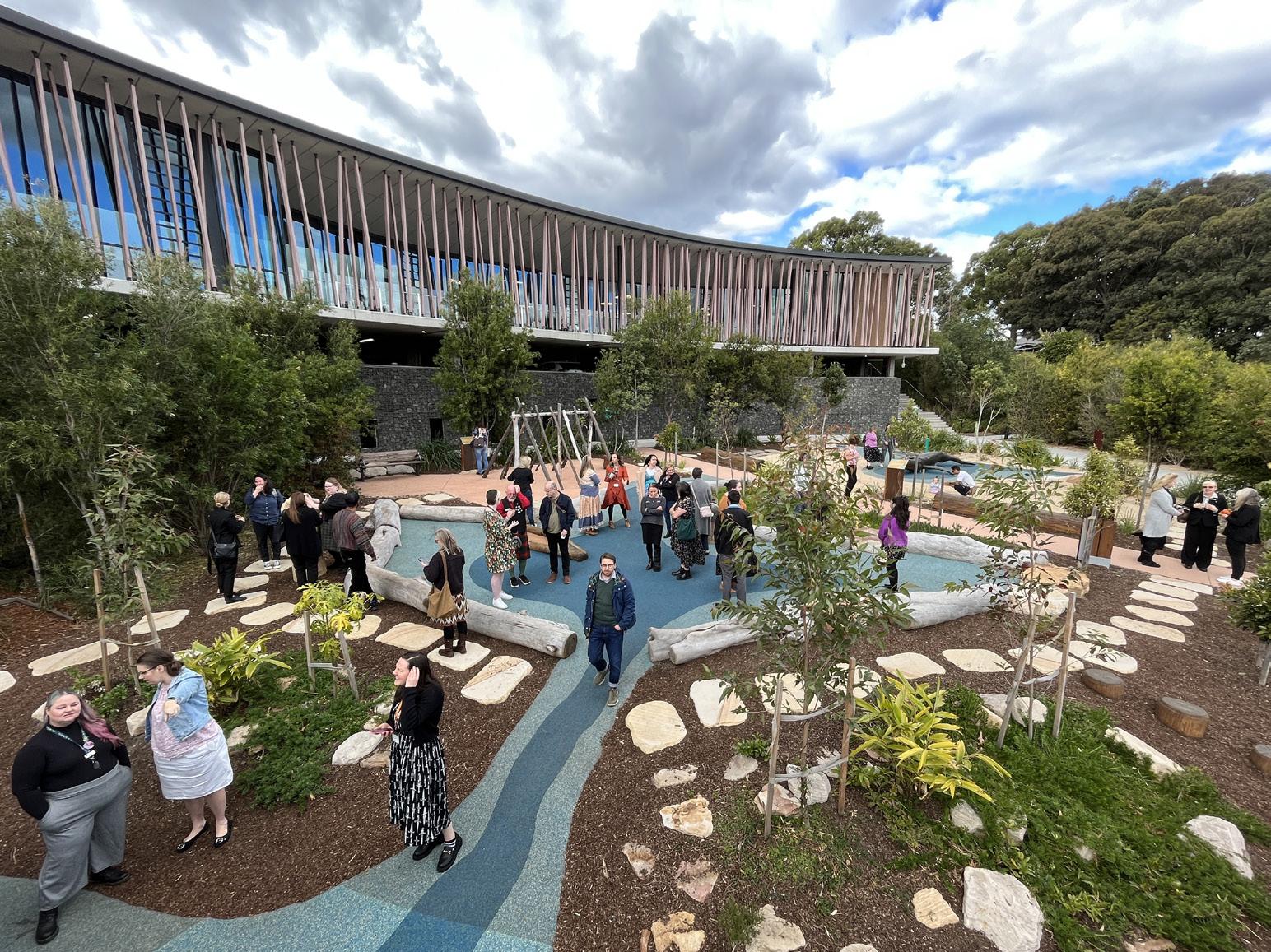
The keynote address on graphic novels was delivered by Gabby Cundy from ALIA Graphic, and attendees heard from 2 museums, 7 libraries and 21 presenters giving 18 presentations. A huge day! The presentations touched on refurbishments of library spaces, podcasting, art at the library,
mobile libraries, queer stories and Rainbow Storytime, social history, running a death café, and setting up a seed library amongst a varied program.
Although it was a packed program, the feedback from the 55 attendees has been very positive. Morning tea was sponsored by RAECO and the registration fee went towards a donation to the Indigenous Literacy Foundation from GLAMAWARRA and the ALIA South Coast Group.
We hope to see you all at GLAMAWARRA 2025.

Acknowledgment of Country
The Australian Library and Information Association acknowledges the Traditional Owners of Country throughout Australia and recognises their continuing connection to lands, waters, cultures and communities. We pay our respect to Aboriginal and Torres Strait Islander peoples, and to Elders past and present.

News | INCITE Magazine 5 NEWS
Artwork: Richard Allan Jr.


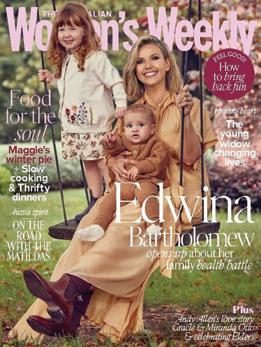




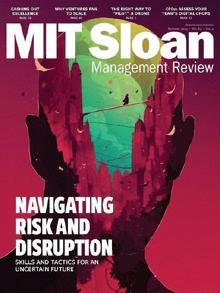
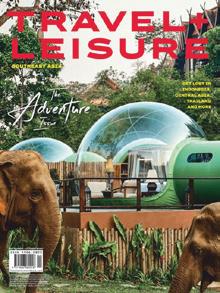

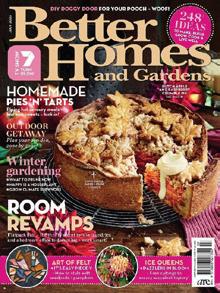

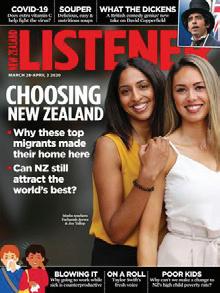
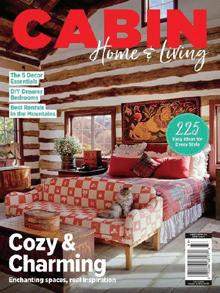

PUBLIC LIBRARY MAGAZINES Read the magazines everyone is talking about. Updated weekly! See over 320 titles 16 Stretch your magazine budget further You can give your patrons more of the magazines they want with OverDrive’s extensive digital catalogue of popular titles. We make it easier for you to cater to all interests with both local and international favorites. And it’s all available at an affordable price. Visit Marketplace.OverDrive.com to add magazines
By now many of you will have experienced a range of reactions to and/or requests for information regarding the coming referendum on the Voice to Parliament. In my news feed there is a rising tide of negative and racist commentary around the issue. This public debate and commentary impacts negatively on the wellbeing and safety of Aboriginal and Torres Strait Islander colleagues and library users.
The ALIA Board endorses the Uluru Statement from the Heart, and released a Statement on the upcoming Referendum on the Voice to Parliament earlier in the year. If you haven’t read it yet, I recommend you read it now and reflect on the role of your library service and what actions you can take in the lead-up to the referendum.
ALIA has created member resources to support library and information services during the referendum. This includes resources for planning and mitigating risks to colleagues and community.


We have also updated the Indigenous Matters page on our website with up-to-date resources for the referendum, wellbeing resources, and arranged for official information to be sent to all public libraries across the country. I urge you all to take some positive steps to be an information point for your community, organisation or educational institution, and to host conversations regarding the upcoming referendum.
In my library service, Yarra Plenty Regional Libraries (YPRL), my Board voted unanimously to endorse the Uluru Statement from the Heart in full. Our libraries will now take a range of actions to demonstrate our commitment to affecting positive change with the local First Nations community. YPRL is supporting the Uluru statement from the Heart because:
• we want to accept the invitation to walk with First Nations communities to ensure our libraries are welcoming and safe
• as a library service we want our communities to be informed about the Uluru Statement and First Nations culture
• it is an important step in Australia’s reconciliation journey and one in which YPRL has chosen to take an active part. We have also set out our role for informing the community on the upcoming referendum on the Voice:
• a library’s role in community is to provide access to information to ensure everyone understands the purpose of the referendum
• a library’s role in community is to promote democracy and help everyone make an informed decision to vote at the referendum
• we want to be the place where people come to find out what the Uluru statement is about and why we are having a referendum
• we want people to be able to make an informed vote, not have anyone tell them what to vote.
Whilst the discourse surrounding the Voice has presented challenges for the sector, there have been many highlights this year so far. One of these was the ALIA Mentoring Scheme wrap-up –a webinar featuring a series of lightning talks from participants, both mentors and mentees, highlighting their experiences in the scheme. These experiences showcased the growth, confidence and success that can come from sharing knowledge with each other as a mentor and mentee. The ALIA team has now matched mentors with mentees for the coming 12 months of the scheme, and I wish everyone participating a wonderful time. There is a monthly webinar for participants focusing on key career information, with new graduates, senior professionals and recruiting experts sharing tips and information to further support mentees. It is great to see this program go from strength to strength, and it is consistently heartwarming to see the generosity that exists in our profession when experienced people give back and support our up-and-coming library people. If you’d like to know more about the Mentoring Scheme you can visit the page on the ALIA website or contact education@alia.org. au. It is a very rewarding scheme to be part of and I look forward to working with my new mentee in the coming 12 months.
Jane Cowell AALIA
From the president | INCITE Magazine 7 FROM THE PRESIDENT
(DCP)
ALIA President
In my library service Yarra Plenty Regional Libraries (YPRL), my Board voted unanimously to endorse the Uluru Statement from the Heart in full. Our libraries will now take a range of actions to demonstrate our commitment to affecting positive change with the local First Nations community.
Jane Cowell AALIA (DCP) ALIA president
For this edition’s ‘Library stories’, we caught up with Mary Laba, library technician at Monte Sant’ Angelo Mercy College, North Sydney. Mary discusses a day in the life of a library tech, how to set reasonable goals for long-term success, and gets real about benefits and challenges of balancing work with study.
Library stories
Mary Laba
I like to say I took the long route to where I am. I was nearing the completion of my Bachelor of Arts major in English at Macquarie University when I did an industry placement at Macquarie University Library in 2020. Wearing facemasks and elbow ‘handshakes’ were the norm. Yet, despite the disruption of COVID-19, I realised that a career in librarianship was the path for me.
Having worked within a team to produce recommendations for Macquarie Uni Library to improve their research and assistance services, it was ultimately the research that convinced me. It was interesting to read all about the different models that libraries around the world have applied to ensure patrons are given effective and organised assistance, and which can benefit them in many ways – should they choose to use them. Some models researched included conciergeled information desks, research consultation desks and library lounges. After completing the placement, I just knew that I wanted to contribute; I wanted to bring a voice to the amazing services that librarians provide daily and I, too, wanted to provide that same service to patrons.
So, in my last year at Macquarie, I enrolled in the Diploma of Library and Information Services at TAFE. Halfway through my studies, I gained my first job as a library assistant at Monte Sant’ Angelo Mercy College, North Sydney.
The day in the life of a library technician varies every day for me at Monte. However,
some consistent tasks include providing reader-advisory services to students and staff, managing the circulation of resources, creating engaging displays and purchasing digital and print resources. In a school library there are also seasonal tasks. For example, before school holidays much of my time is allocated to preparing our holiday reading program, Turn the Page, for students in Years 7–9. This is a program that encourages parents and students to read the same book to create conversation and, hopefully, enthusiasm towards reading for pleasure. Another seasonal task includes troubleshooting for Turnitin (software that checks for potentially unoriginal content by comparing submitted papers to several databases). With the rise of artificial intelligence platforms and use this year, it has been interesting to play detective during the assessment periods by uncovering possible plagiarism.
After two years at Monte, learning the ropes as a library technician, I was ready for new challenges. Fortunately, at the beginning of each year, all teaching and non-teaching staff at Monte are encouraged to set a professional goal and a Mercy goal (aligning with the school’s social justice values) for the upcoming school year. Ready to try new things, I wrote for my professional goal: ‘Don’t pass up opportunity for growth (within reason).’
I wrote ‘within reason’ to remind myself that I cannot do everything – no one can.
8 INCITE Magazine | Library stories LIBRARY STORIES
‘Don’t pass up opportunity for growth (within reason!)’
While I would love to contribute to every task, I know it is not within my ability. So, I determined a task ‘reasonable’ if I had previously observed the task in action by my superiors or had previously been the recipient of the task and now felt confident to impart my acquired knowledge onto someone else. The first thing I did to start meeting this goal was to put my hand up for tasks outside of my official job requirements. Some tasks I offered to work on included coordinating textbook lists, training new library staff and updating library procedure documents. The biggest task I asked to contribute to was facilitating library lessons for two Year 7 classes. Each fortnight, every Year 7 class comes to the library to learn about referencing, Turnitin, source evaluation and much more. I have never been confident in public speaking, so this was definitely something I wanted to work on. Naturally, I was very nervous the first lesson I led, even though I spent most of my days preparing
and doing mock lessons to rehearse my timing. Today, I am confident to pick up a lesson at a minute’s notice and I have even created my own content. Overall, I was very fortunate to be supported by my head of library Deborah Brown and teacher librarian Felicity Sandral, who both encouraged me to step up this year and try new things. They also gave me great advice on classroom management and even provided me with feedback after my first few lessons.
The second part of meeting this challenge was to formally upskill in order to progress my career. I am currently studying the Master of Information Studies at CSU, while working full time as Monte’s library technician. Studying and working full time is hard; I would never pretend that it isn’t. It is a huge commitment to make and it will take many sacrifices.
For example, during my bachelor’s degree, I was never one to stay up late to study. However, now that I am studying and
working at the same time, I have realised how quickly my daily schedule needed to change to ensure I found a healthy balance between tasks. Another challenge I found was keeping on top of my social events in addition to work and study. I think the experience of living through COVID-19 and lockdowns gave some perspective. It was useful for me to look back at pre-COVID days and think about the pace I was then living. It all seems a bit impossible now. So again, as much as I would like to, I cannot do everything. I cannot attend every social event or catch up with a friend for lunch every Saturday. I’ve had to make those small sacrifices, be realistic with my time, work around the events I cannot change the timing of, and make sure I prioritise myself by fitting in some self-care days too. As challenging as it is at times, it is so rewarding to know that every submitted assessment brings me closer to being a qualified librarian.
Whilst I’m realistic about the challenges posed by balancing work and study, this has been the best year for me professionally. I have been able to upskill, step outside my comfort zone and gain new experiences. I have learned so much about myself and my capacity to face new challenges. So, the best advice I would give anyone is to put your hand up to try something new. Ask to shadow your manager so they might pass new tasks onto you. Think about a reasonable goal and how it fits with your current life and commitments. Be open to working above your job title if it means you are able to gain a diverse range of skills and experiences. Overall, there are so many ways to benefit your situation. You just need to find the best way for you.
Mary Laba Library technician Monte Sant’ Angelo Mercy College, North Sydney mlaba@monte.nsw.edu.au
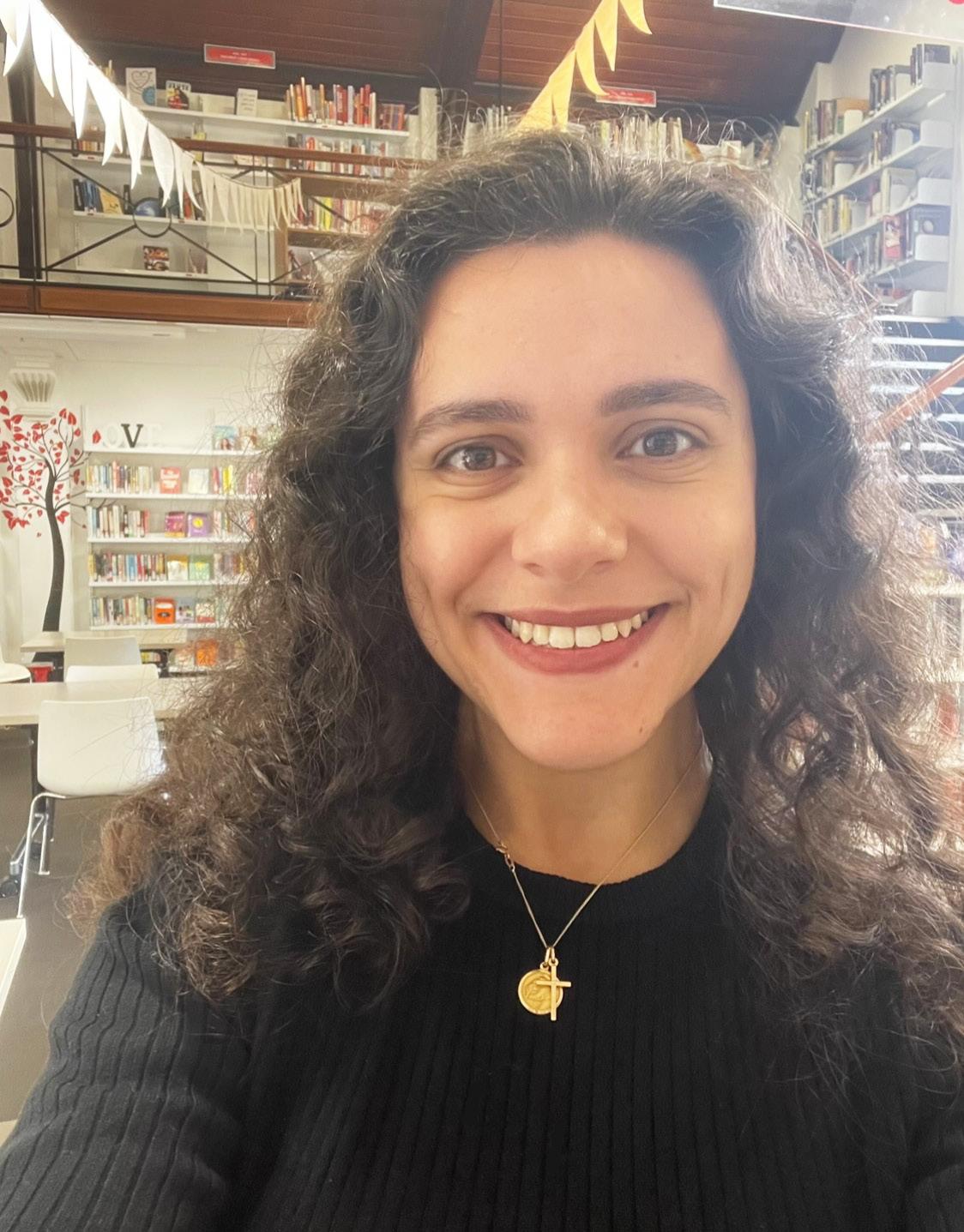
LIBRARY STORIES Library stories | INCITE Magazine 9
In the last two CPD spotlight features we’ve brought you stories from some of our CPD superstars, whether they be at the beginning of their journey or recently awarded their ALIA Distinguished Certified Professional status. All of them have taken advantage of the full breadth of learning opportunities available – from volunteering in a school library, to mentorships, to leadership academies. In this edition we’re turning the spotlight on Jacqui Lucas and Gary Lom from ALIA’s Policy and Education Team, who oversee ALIA’s CPD scheme. Jacqui (ALIA professional learning teacher librarian) and Gary (ALIA training lead) have been busy updating one of our most prized CPD resources – 100+ ideas for your Professional Development – to align with the needs of our members and the ongoing changes to what constitutes learning, reflection and development in our working lives.
Jacqui Lucas
Gary Lom and
It would be the understatement of the century to say the COVID-19 pandemic has ushered in an enormous amount of change in our lives and workplaces. The ongoing challenges presented by extended lockdowns, illness and changes to work practices has meant that here at ALIA we need to ensure our programs, events and resources are aligned with the changing needs and circumstances of our members.
‘During the COVID-19 pandemic, some people were able to use their lockdown time to progress their CPD significantly, while others were simply unable to due to added stress, caretaking responsibilities or any number of challenges presented by the pandemic,’ Jacqui said.
‘Since we have always intended for the CPD scheme to have the breadth and elasticity to cater to not only different personal circumstances but also different learning ecosystems, we thought it was time to revisit and update the 100+ resource to ensure people had somewhere to go to better understand how many different ways they can maintain their professional development journey in the face of so much change.’
This isn’t the first time the popular resource has been revised. First developed in 2017, the resource has grown from 50 ideas to 80, then to 100 and now to 100+ as new means of professional learning emerge. The most recent revision in 2019, however, broke CPD activities into broad
categories: Professional Reading, Events, Writing and Social Media, Selfimprovement, Further Education, Speaking, Research, Contributing to the Sector, ALIA Resources, Online Learning and ‘Create’.
‘We developed the categories in response to questions from our members as to what constitutes professional development,’ Gary said.
‘We find people often have the idea that CPD is mainly paid training, in-person conferences, with perhaps some professional reading thrown in there. But it extends so much further than that. It can be everything from library visits, to secondments, to workplace safety training. It can even be those collegial conversations that naturally occur over the course of any workday – either virtually or in person.’
Jacqui added: ‘Reflecting on what you’ve learned from a given activity is the key to professional development. A learning reflection is not just a description or overview of the activity, we want participants in the ALIA CPD scheme to truly reflect and articulate what they’ve learned from undertaking an activity – what was new learning to you? How will this impact your practice moving forward?’
Another frequently asked question about the scheme is how the hours spent on an activity translate to CPD hours logged.
CPD SPOTLIGHT 10 INCITE Magazine | CPD spotlight
‘The good news is that the scheme relies on an honesty system –and we trust our members,’ Jacqui said. ‘The amount of hours you spend actively learning during an activity is the amount of hours you put down in the logbook.
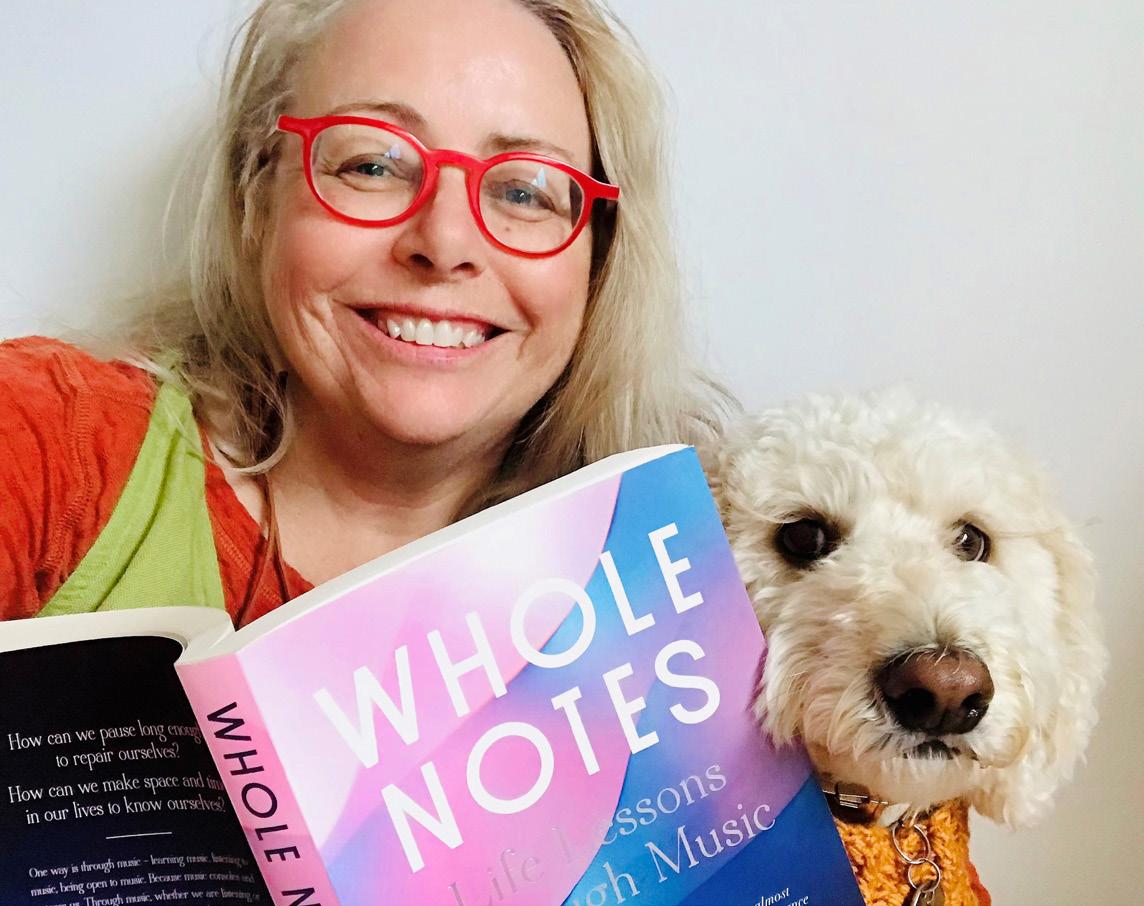
‘There is no fixed amount of time that an activity can take. Everyone learns at very different paces and the scheme is designed to support and accommodate that variation.’

What’s new?
So what’s new about the newly revised ‘100+ resource’? The professional learning categories in the document are being changed to be more in line with the Activity Type categories listed in the CPD logbook and, of course, references to technologies always require updating. The opportunity to accrue CPD hours by contributing to ALIA will also be included, especially in terms of engagement with regional and special interest groups. Involvement with ALIA’s library advocacy campaigns for the library and information sector are also great, cutting-edge professional development opportunities.
‘We find people often have the idea that CPD is mainly paid training, in-person conferences, with perhaps some professional reading thrown in there. But it extends so much further than that. It can be everything from library visits, to secondments, to workplace safety training. It can even be those collegial conversations that naturally occur over the course of any workday –either virtually or in person.’
CPD spotlight | INCITE Magazine 11 CPD SPOTLIGHT
Right Gary Lom Photos: Supplied
Above Jacqui Lucas
Photo: Supplied
A brief history of school libraries in Australia
By Krystal Gagen-Spriggs, PhD candidate, School of Information Studies, Charles Sturt University
There is currently no full length study published that details the history of school libraries at a national level. The lack of a comprehensive history presents numerous challenges for understanding the foundations of school libraries, their development throughout the 20th century, and their future. In this piece I present a brief history of school libraries in Australia which forms part of my PhD research.
The record keeping of school libraries and their importance prior to the 19th century and into the early 20th century was largely influenced by the attitudes of the public library and education sectors towards school libraries. According to Laurel Clyde (1981), neither the public library profession nor departments of education viewed school libraries as important, therefore the focus of record keeping and library development
From the archive
was neglected. This meant that records of school libraries were the responsibility of the schools themselves, resulting in little to no accounts prior to 1935. Evidently, the lack of evidence highlighted several issues regarding funding, resourcing, staffing and acknowledging the important work conducted within school libraries.
The Munn–Pitt Report – a survey of Australian libraries published in 1935 – highlighted the little attention or acknowledgement that was paid to school libraries in their incarnations prior to the 1930s. The report also established that school libraries existed across Australia, but labelled them as inadequate and unworthy of the name of ‘library’. Most importantly, Munn and Pitt had clear criteria for what constituted the role of ‘satisfactory service’ (1935, p.105) for libraries in the 1930s, which
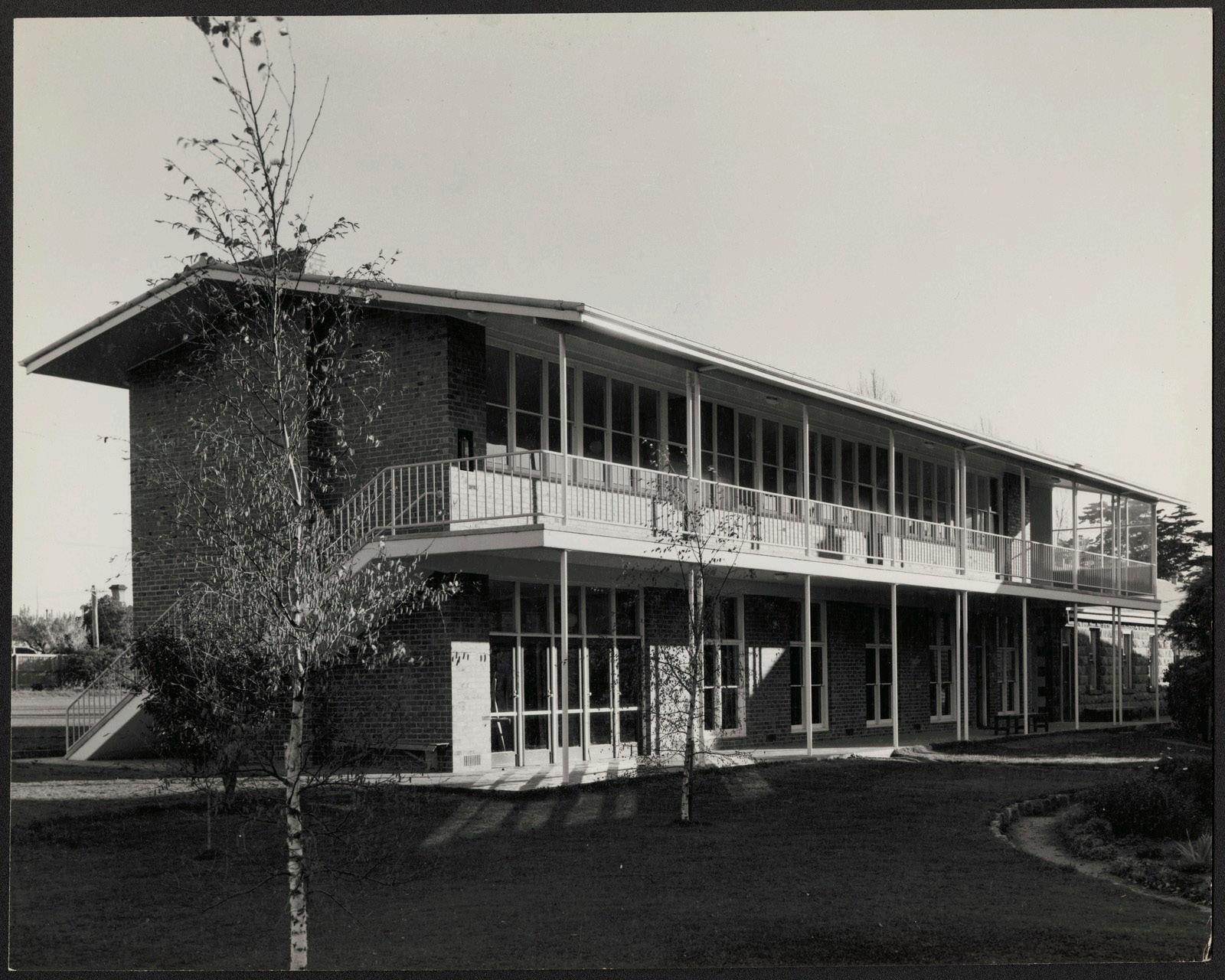
12 INCITE Magazine | From the archive FROM THE ARCHIVE
Right
The Library, The Hermitage, Church of England Girls’ Grammar School, Geelong, VIC, 1950 [?].
Photo: Wolfgang Sievers, State Library Victoria
they believed school libraries did not meet. A follow-up report by Frank Kirby in 1945 further investigated the state of school libraries in Victoria, and drew similar conclusions to Munn and Pitt’s report of 10 years earlier. According to Kirby’s findings, school libraries were still inadequately funded and supported, but held enormous potential.
Kirby found libraries that existed in schools with active communities as support networks were more likely to have larger collections, supportive principals and better student engagement with library resources. This meant school libraries that were well funded and supported were often located in non-government schools, due to the donations of parents. This report contributed to the decision of the Victorian Department of Education to adopt ownership of school libraries in public schools, by formally acknowledging the existence of any school library in public schools from 1946 onwards.
Despite this decision, the move was not replicated nationally until much later. A continued lack of funding from national
and state departments of education resulted in school libraries not being able to provide essential services to their school community (Nimon, 2004). The Fenwick Report of 1966, commissioned by the Library Association of Australia (LAA) in 1964, revealed that school and children’s libraries in Australia were severely lacking in support and funding. As a result of this report, the LAA called for financial support from the Commonwealth Government. 1967 saw the establishment of the schools branch of the Library Association of Australia, which was designed to advocate for school libraries. This was in addition to the state and territory school library associations and the Australian School Library Coalition (ASLA), which was formed in 1969. In 1989 the LAA renamed itself the Australian Library and Information Association (ALIA).
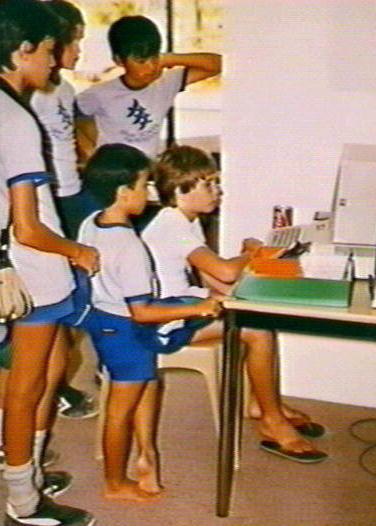
Between 1969 and 1971, Malcolm Fraser, Federal Minister for Education and Science, announced a $27 million grant for secondary school libraries between 1969 and 1971, with additional funding for primary school libraries promised in 1974. In addition to this funding, the next 10 years saw an
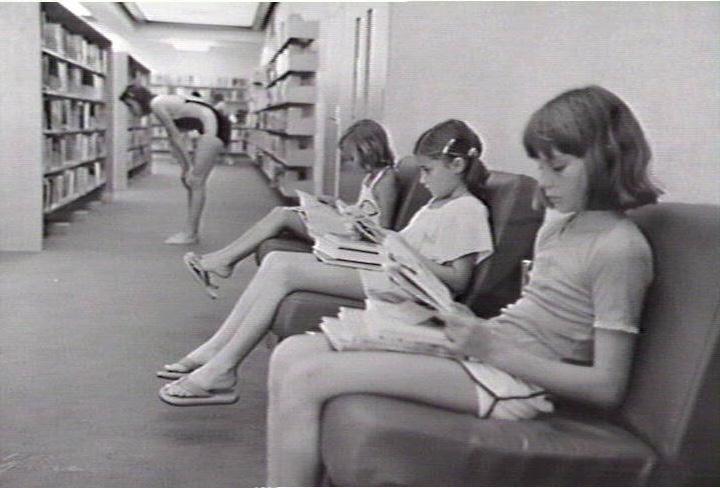
increase in momentum for Commonwealth support of school and children’s libraries, resulting in approximately $200 million in grants for primary and secondary school library funding.
In recent years, school libraries have become a physical space that is common across Australian schools. However, there are still inequities evident, particularly in resourcing and staffing. In 2011, the House of Representatives Education and Employment Committee produced a report called School libraries and teacher librarians in 21st century Australia. This report provided 11 recommendations for the improvement of school libraries, the essence of which includes:
• equitable provision of digital resources and learning and teaching
• ongoing additional initiatives to promote reading for pleasure
• evidence-based practice to capture data on the impact of teacher librarians and library programs on student success
• ongoing support at a federal, state
FROM THE ARCHIVE
Above Palmerston Public Library, 1985.
Photo: International 4.0 (CC BY 4.0) Library & Archives NT
Above Young readers, Casuarina Public Library (10.30 a.m.), 1980.
From the archive | INCITE Magazine 13
Photo: International 4.0 (CC BY 4.0), Library & Archives NT
and territory level to support teacher librarians and school libraries.
These recommendations identify the need for equitable access to digital resources and digital pedagogies for all Australian students. It is further highlighted that a teacher librarian is best placed to lead in digital literacy and information fluency – both essential skills identified by this report.
Unfortunately, the recommendations outlined by the report have not been successfully deployed across the states and territories of Australia. As the ALIA/ ASLA joint statement with the AEU on the importance of equitable access to digital resources and qualified teacher librarians says: ‘The provision of school library services
in Australia is ad hoc. Access to qualified staff, a well-developed collection of resources, physical facilities and infrastructure is inequitable’.
More recently, ALIA has been working with the Students Need School Libraries campaign and the Australian Coalition for School Libraries to bring together school library associations and supporters at national, state and territory levels to advocate for every Australian child to have access to a well-resourced school library and qualified staff. A continued focus on the resourcing and staffing of school libraries to ensure equity across Australian schools is vital for the success of our future.
References
ALIA Schools. (2016). 50 years of ALIA schools
Australian Library and Information Association.
Australian Library and Information Association. (2019). Milestones in the 50 years of ALIA schools.
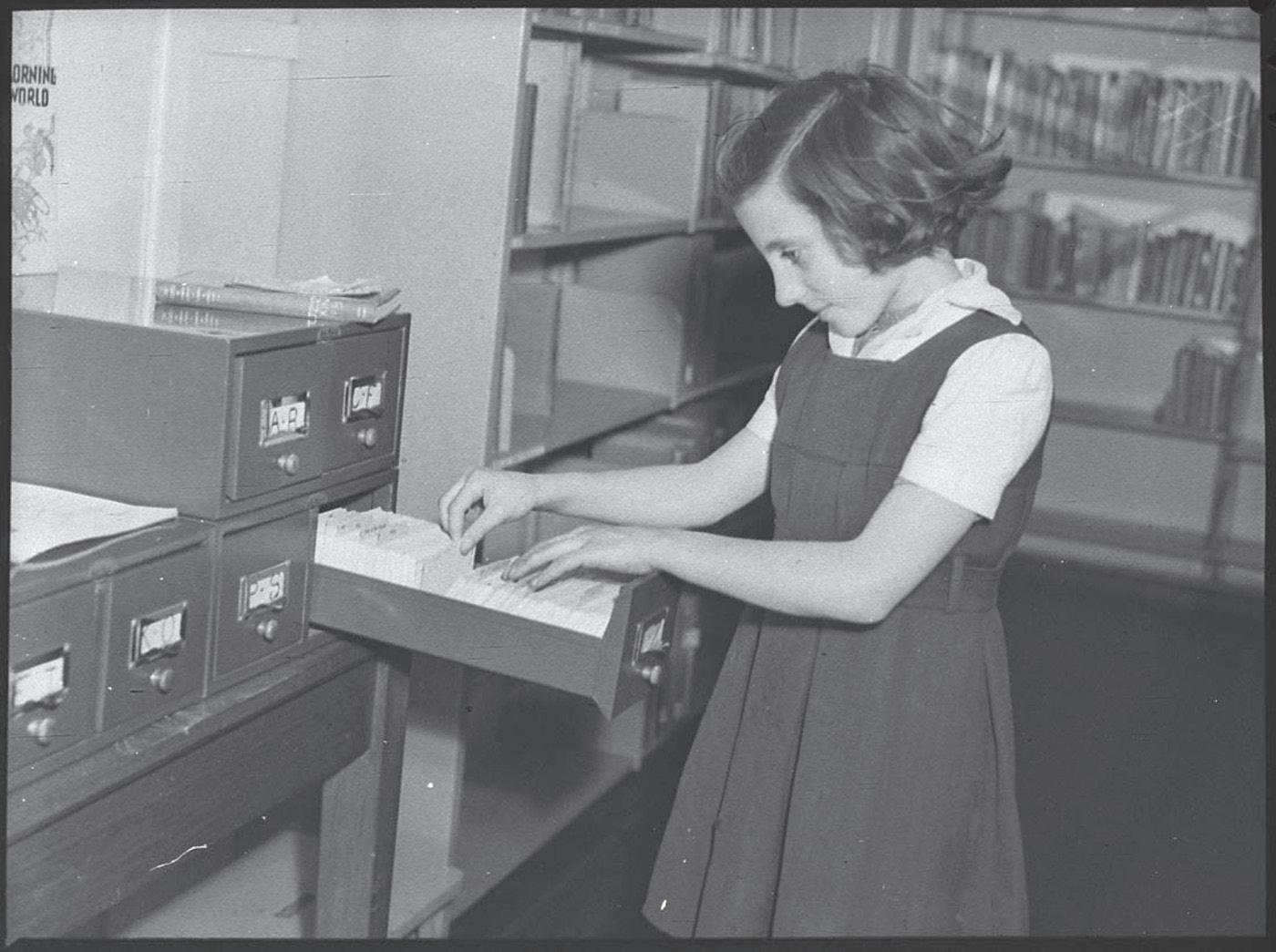
Australian Library and Information Association. (2022). History of the Association
Australian Library and Information Association and Australian School Library Association. (2004). Standards of professional excellence for teacher librarians
Barton, V., Pickworth, M. and Haythorpe, C. (2021). Joint statement on school libraries
Clyde, L.A. (1981). The magic casements: A survey of school library history from the eighth to the twentieth century [PhD Thesis]. James Cook University.
House of Representatives Education and Employment Committee. (2011). School libraries and teacher librarians in 21st century Australia Standing Committee on Education and Employment.
Left
Kirby, F.G. (1945). Libraries in secondary schools: A report on the libraries of secondary schools in Victoria, with suggestions for a post-war plan for school libraries prepared for the Australian Institute of Librarians (Victorian Branch) Melbourne University Press.
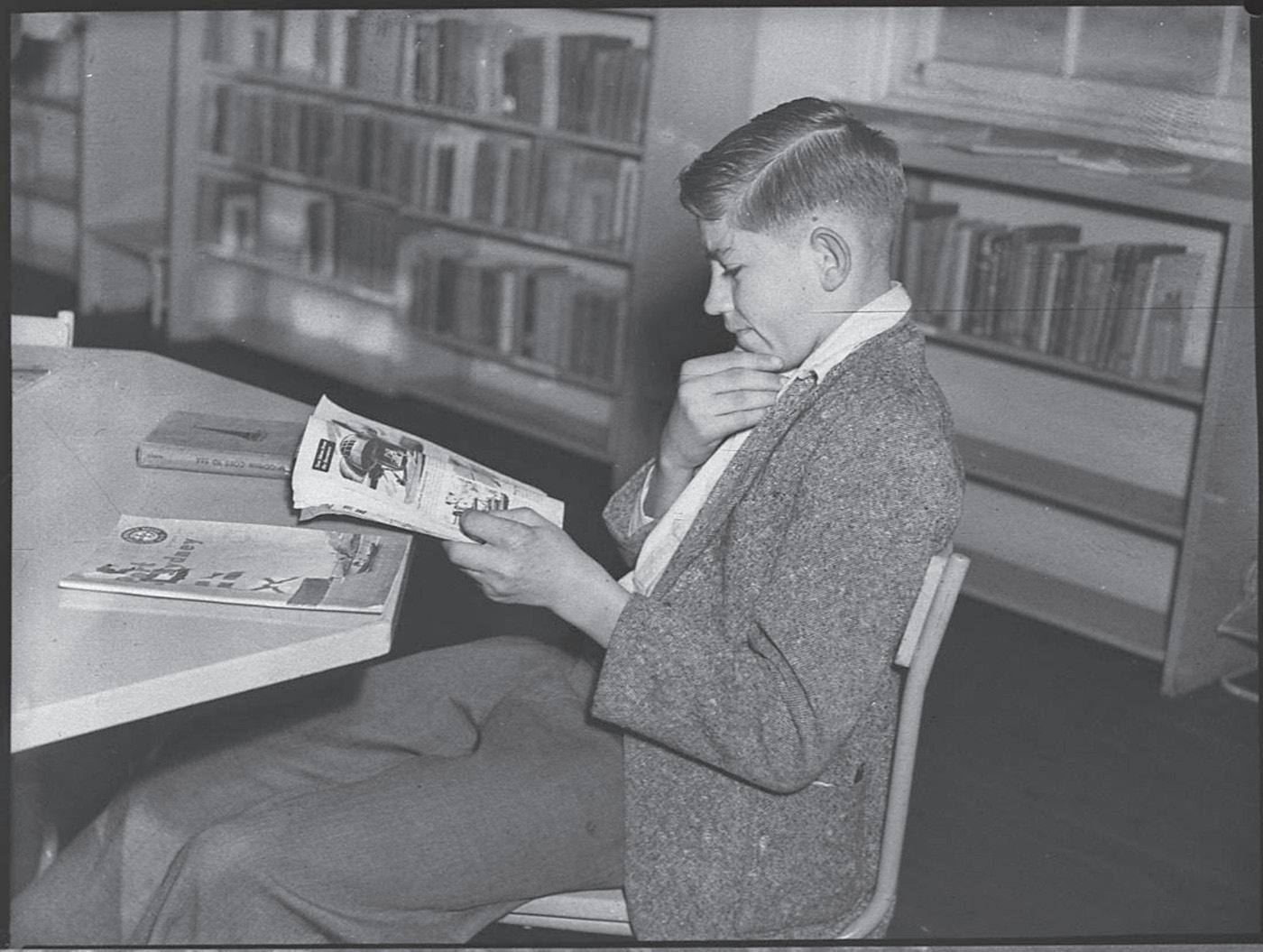
Munn, R. and Pitt, E.R. (1935). Australian libraries: A survey of conditions and suggestions for their improvement. Australian Council for Educational Research.
Nimon, M. (2004). School libraries in Australia. The Australian Library Journal, 53(1), 71–80.
Queensland School Library Association. (2021). History of QSLA.
Rochester, M.K. (1990). Australian library history research. Libraries & Culture, 25(1), 115–129.
Left Girl
Ryan, S. (2018). School libraries in Australia: Reflections on ALIA’s role over the past 50 years. Journal of the Australian Library and Information Association, 67(2), 155–163. https://doi.org/10.10 80/24750158.2018.1467746
School Library Association of New South Wales. (n.d.). A history of SLANSW https://www.slansw.net.au/history
Sommerville, B. (2021). ASLA: Celebrated 50 years in 2019. Australian School Library Association. https://asla.org.au/history
Wyeth, E.R. (1952). Education in Queensland: A history of education in Queensland and in the Moreton Bay district of New South Wales Australian Council for Educational Research.
FROM THE ARCHIVE 14 INCITE Magazine | News
Boy reading comic at table, Children’s Library Series, 1950, State Library NSW
using card
Library Series, 1950, State Library
catalogue, Children’s
NSW
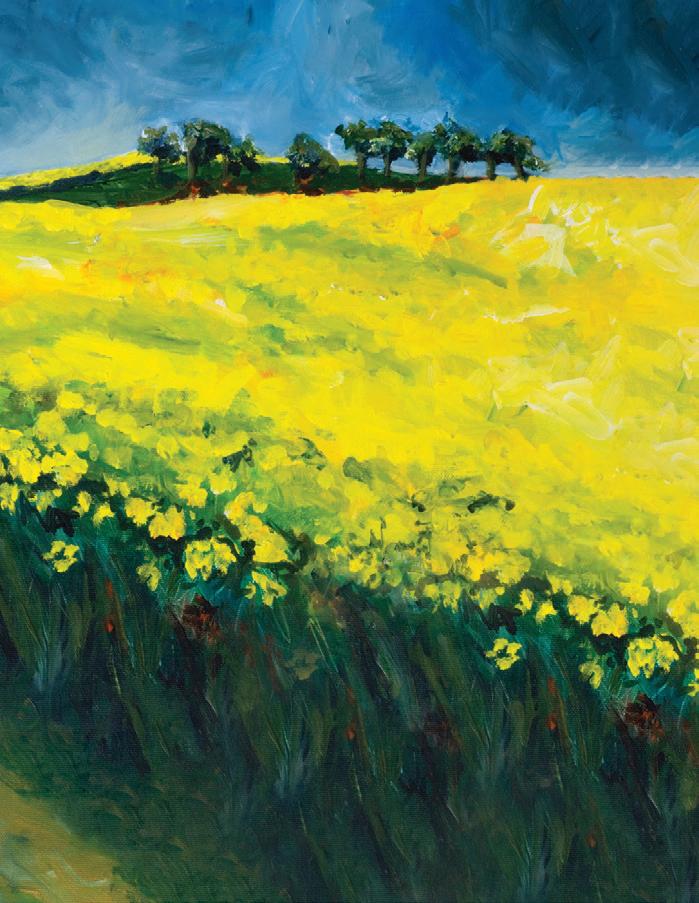
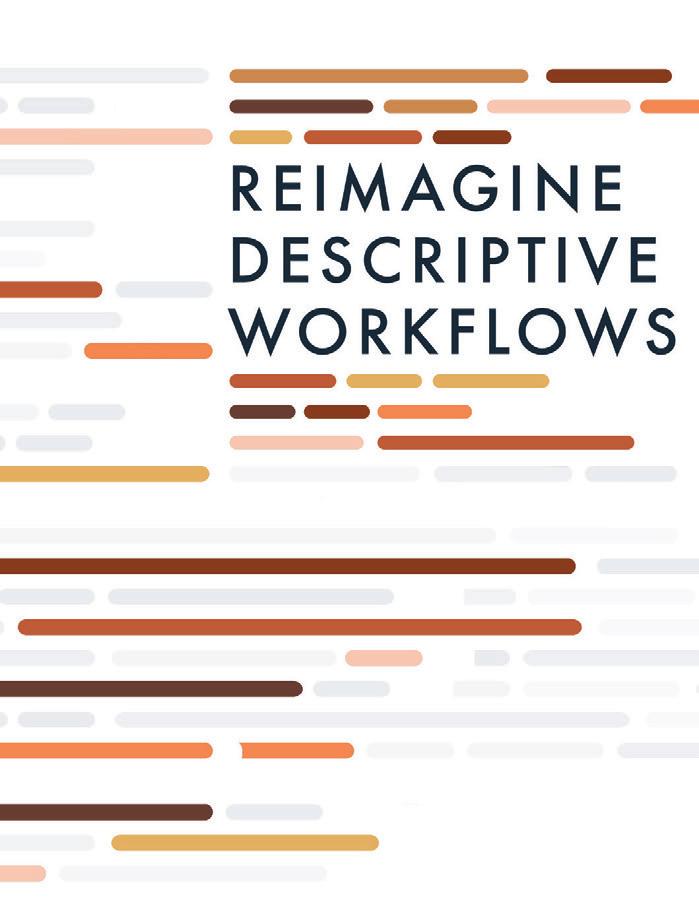

Stay connected with Abstracts OCLC’s digest of news, events, and research Sustaining Art Research Collections: Using Data to Explore Collaboration Brian Lavoie, Dennis Massie, Chela Scott Weber OCLC RESEARCH REPORT | FEBRUARY 2023 A Community-informed Agenda for Reparative and Inclusive Descriptive Practice Rachel L. Frick and Merrilee Proffitt OCLC RESEARCH REPORT MARCH 2022 "Libraries Model Sustainability": The Results of an OCLC Survey on Library Contributions to the Sustainable Development Goals Lynn Silipigni Connaway OCLC Research Brooke Doyle OCLC Research Christopher Cyr Morning Consult Peggy Gallagher OCLC Joanne Cantrell OCLC Note: This is an author accepted manuscript of an article published in the IFLA Journal copyright 2023 Sign up at oc.lc/newsletter Library Collaboration as a Strategic Choice: Evaluating Options for Acquiring Capacity Brian Lavoie OCLC RESEARCH REPORT AUGUST 2022
Conferences
So often the words ‘truth’ and ‘dare’ appear in opposition to one another, with truth associated with speech and dare with action. But what if a pursuit of and commitment to the truth in fact leads to bold, innovative and transformative action? This is the idea at the centre of ALIA’s National Conference 2024 ‘Truth and Dare’.
Taking place on 6–9 May 2024 at the Adelaide Convention Centre, ALIA’s National Conference will once again act as a major meeting point for the library and information sector to come together and share ideas, research and resources. The Truth theme will have two angles. The first is to provide a platform for presentations from Aboriginal and Torres Strait Islander colleagues. The second is to explore the role of libraries as sources of information and places of intellectual freedom. The Dare theme lends itself to a range of ‘Dare to …?’ topics, which are currently under development. We are also considering a day that highlights the work of ALIA’s special interest groups and provides an opportunity for everyone to engage with the latest issues and current concerns of those groups. So we dare you to register now. The truth is, you won’t want to miss it.
And in case you just can’t wait that long, we have two conferences coming up before the end of the year of relevance to everyone in the sector – see overpage for more information.

16 INCITE Magazine | News ALIA NEWS
us if you dare … for ALIA’s
Join
National Conference 2024
ALIA VET Libraries Australia Conference
8 November 2023
Are you passionate about pushing the boundaries of librarianship?
The VET Libraries Australia Conference ‘Breaking Barriers’ will take place on Wednesday 8 November 2023. This virtual conference is designed to empower library information professionals working in vocational education institutions by providing them with the latest knowledge and expertise required to meet the challenges of the 21st century. Featuring a stellar line-up of keynote speeches alongside presentations, lightning talks and panel discussions, you will have the opportunity to connect with your peers from across Australia, build knowledge, share information and explore innovative ideas for improving library services in vocational education.
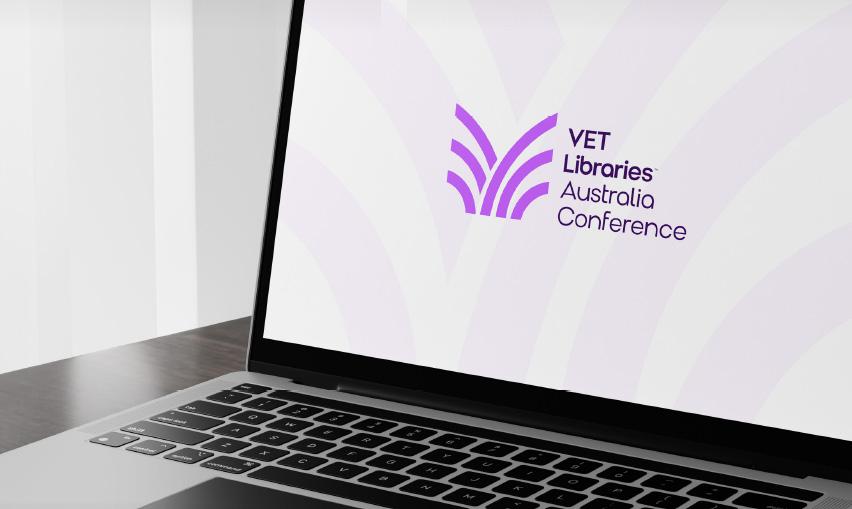
MORE INFORMATION
Head to the event page.
Greening Libraries Conference
22 November 2023
This one-day conference will take place on Wednesday 22 November 2023. It will be a hybrid event – in-person at the National Library of Australia in Canberra and via livestream around the country. The conference program is under development, but we are looking to showcase initiatives in libraries from across Australia, follow up on themes in CSU’s Greening libraries report and look at emerging issues like the carbon footprint of digital collections.
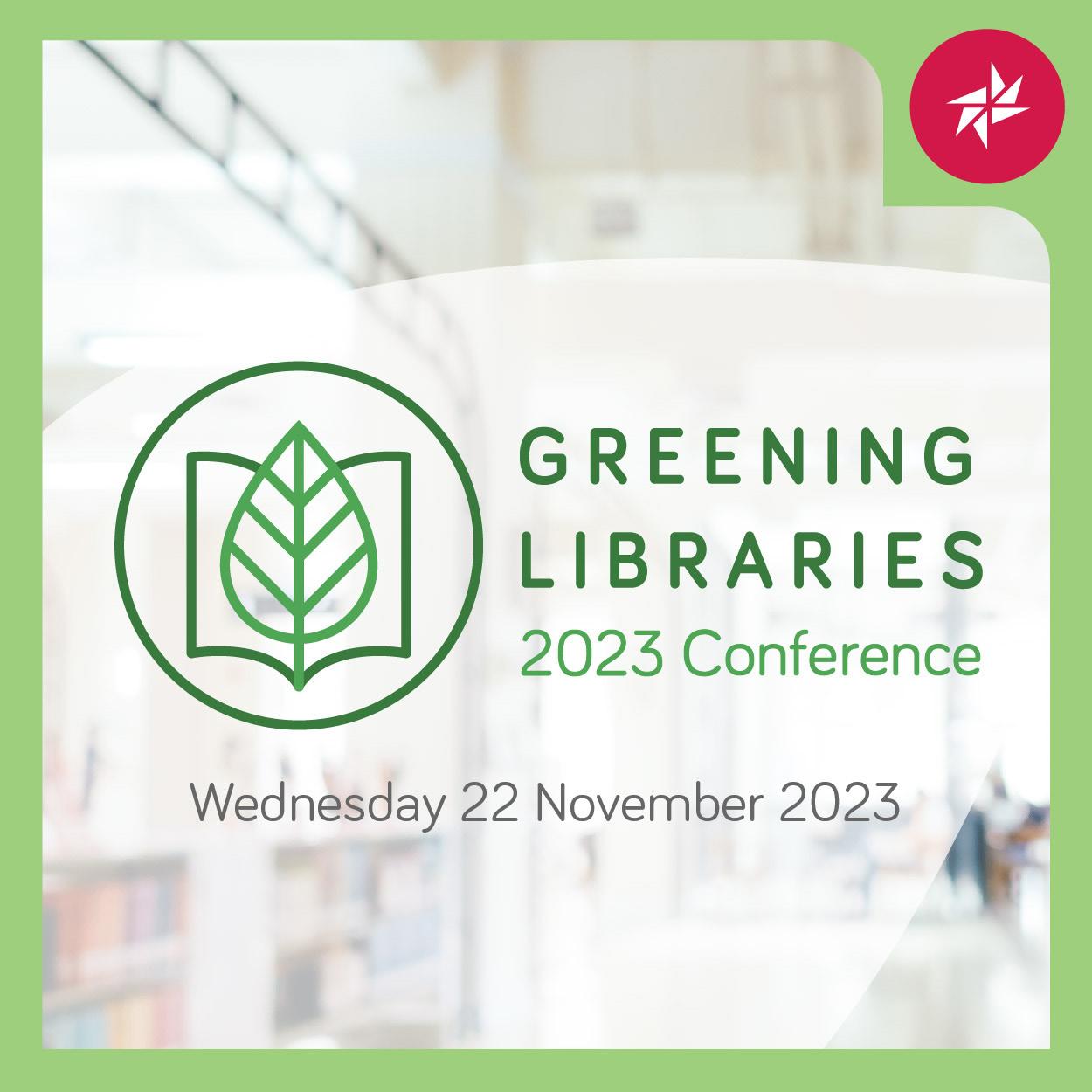
MORE INFORMATION
Head to the event page
Don’t forget!
If you are a member of the ALIA CPD Scheme or Proficiency Recognition Program (PRP), you can log and reflect on your time spent engaging in these events for CPD hours. There is no cap on the number of hours you can claim – the total is simply the number of hours that you can spend actively learning and engaging in the conference content. This will vary from person to person. Any PD questions can be sent to pd@alia.org.au
News | INCITE Magazine 17
ALIA NEWS
Scholastic values reading in school and at home
We proudly promote independent reading to Australian schools, parents and children through Scholastic Book Club, Book Fairs, Australian Standing Orders, Community Libraries and Retail Outlets.
We understand how crucial independent reading is to children’s success and the importance of helping children to find the right books to get them excited about stories and information, to link their reading to fun, discovery and curiosity, and to promote the sheer joy that reading can bring.
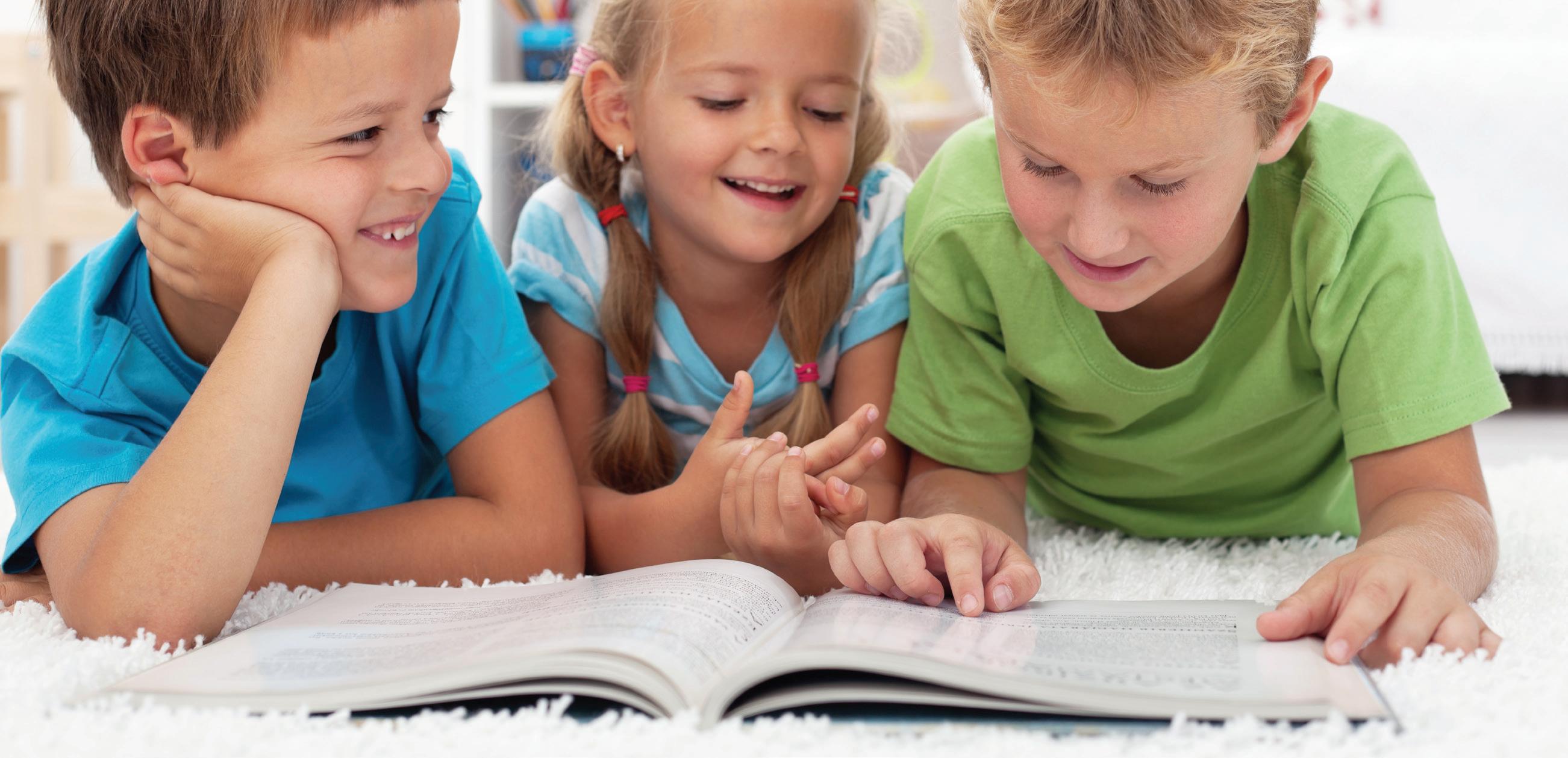
Right now, and more than ever, reading occupies limited space for many children, often competing with gaming and technology. Also, many children have been impacted by the COVID pandemic leading to school closures and disruptions, with some children starting their first years of school not even stepping foot into a classroom.
With continued partnerships, we can help all children learn to read and love to read, guiding them on their way to reach their greatest potential. We know that children want to read. So, how do we get them there?
What the research tells us
Independent choice is key to keeping children engaged in reading.
• Children who choose their own books to read are five times more likely to read the whole book.
• When a young child gets excited about a story, they can read five books in a single day. An older reader can read several books in a week when they find a book that connects to their life and expands their world.
• When children want to read, they drive their own learning.
Children who have access to books at home do better in school.
• Having books in the home is more important than parents’ education levels as a marker for success in school.
• On average, students with more books at home have higher educational attainment achieving three years more schooling than children from bookless homes.
• On average, kids ages 6–17 report reading 23 books over the past year, yet frequent readers read nearly six times the number of books compared to infrequent readers.
There is a clear link between regular reading and social, emotional and physical health.
• The greater a child’s access to books, the more likely they can cultivate an appreciation for diverse experiences and develop empathy for others.
• Reading helps children feel more optimistic and see a world where they can reach higher and achieve their dreams.
• Just 30 minutes of reading is shown to have a measurable impact on physical health— significantly decreasing blood pressure and heart rate.
ALIA NEWS
SCHOLASTIC SCHOLASTIC Australian Standing Orders SCHOLASTIC SCHOLASTIC Retail scholastic.com.au Partner with Scholastic
ALIA Aboriginal and Torres Strait Islander Expert Advisory Group
In the previous edition we reintroduced you to the New Generation Advisory Group, which was reaffirmed as one of the advisory committees in the recent review of ALIA Groups and Committees. This edition, we introduce you to the Aboriginal and Torres Strait Islander Expert Advisory Group.
ALIA’s Aboriginal and Torres Strait Islander Expert Advisory Group (EAG) has been established to lead ALIA on future strategies to support Indigenous priorities across the Library and Information Service (LIS) sectors. The Expert Advisory Group collectively brings together seven First Nations LIS Professionals with a wealth of knowledge, expertise and experiences.
Throughout the year the EAG advises the ALIA Board on:
• the optimal form for ongoing governance and representation
• options to advance the recommendations in the National survey on Aboriginal and Torres Strait Islander employment in Australian libraries
• the future of the Aboriginal and Torres Strait Islander Library, Information and Resource Network (ATSILIRN) and revision of the ATSILIRN protocols
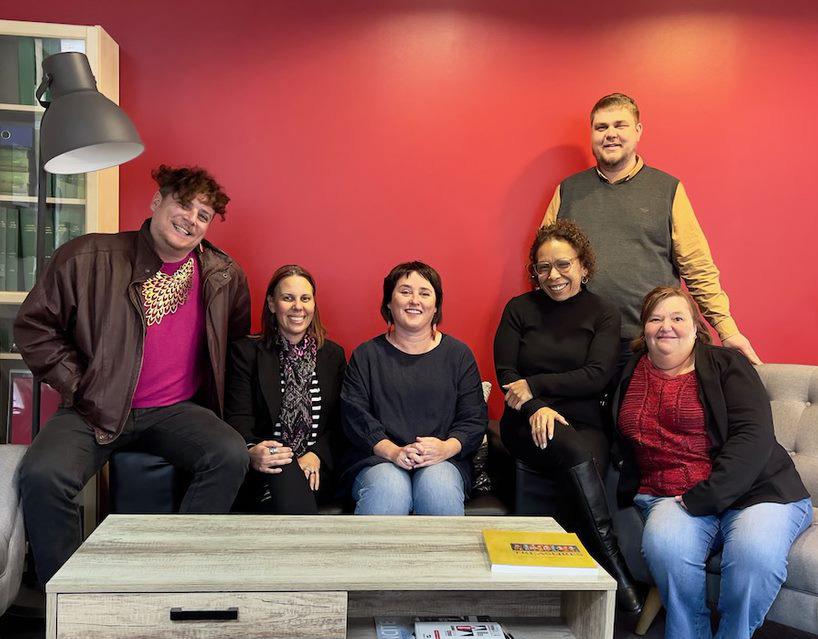
• engagement with Indigenous LIS colleagues in the region and internationally
• other priorities for Aboriginal and Torres Strait Islanders that are identified.
The EAG will, in the way it finds most appropriate, ensure that Aboriginal and Torres Strait Islander voices from across Australia and across library and information services are heard. Its role is to consult and engage as it sees most appropriate with Aboriginal and Torres Strait Islanders in library and information services, including ALIA Members, students and retirees. The EAG may consult more widely with key stakeholders.
Currently, the EAG is supporting the development of the ALIA Professional Pathways project and providing strategic input into the First Nations Collections Descriptions Guidelines Project.
Want to know more about the EAG? Click here for updates on key activities, terms of reference and member bios.
You can also find out more about how ALIA is working to support First Nations’ workers in the library and information sector on the Indigenous Matters page
Above
ALIA NEWS News | INCITE Magazine 19
ALIA’s Aboriginal and Torres Strait Islander Expert Advisory Group (EAG) has been established to lead ALIA on future strategies to support Indigenous priorities across the Library and Information Service (LIS) sectors.
The Aboriginal and Torres Strait Islander Expert Advisory Group at ALIA House. From L–R: Damien Webb, Renee Johnson, Kirsten Thorpe, Lesley Acres, Ryan Stoker and Rebecca Bateman. (Not pictured – Yanti Ropeyarn.)
Photo: ALIA
Advocacy round-up
It has once again been a busy quarter for advocacy at ALIA. A major area of activity has been supporting libraries to respond to challenges to library programs and collections, challenges that have predominately targeted LGBTQIA+ programs and collection items.
One of these was the challenge to the classification of the award-winning Gender Queer: A Memoir (2019) by Maia Kobabe. ALIA was accepted as an interested party for the review, writing a submission and being invited to present to the Classification Review Board. The Review Board decision was to leave the classification unchanged at unrestricted with the consumer advice ‘M – Not recommended for readers under 15 years’ in a decision that referenced the ALIA submission at length. This means Gender Queer can continue to be available on appropriate library shelves around the country. The announcement is one step in a longer process to ensure people are free to choose what books they want to read, and to ensure library staff are safe and supported when making texts available to the public.
We know these incidents have had a significant negative impact on library users and staff, especially to staff and community who identify as LGBTQIA+. Libraries need to be prepared to respond to these incidents that threaten the wellbeing and safety of staff and community members, as well as the core library values of access to information and respect for diversity. If you haven’t already, please explore the ALIA resources to support libraries in preparing for, responding to and recovering from incidents, and keep an eye on member communications for further updates.
ALIA at the Australian Primary Principals Association in Hobart
The Australian Primary Principals Association National Conference was a great opportunity for ALIA to promote the important role of school libraries. The ALIA team spent four days talking with school principals and leaders across the country about opportunities and barriers facing school libraries and school library staff, and garnering support. The ALIA booth showcased the Students Need School Libraries campaign and promoted Australian School Library Day.
IHACPA data improvement
ALIA National Office and ALIA Health
Libraries Australia (HLA) have responded to concerns from health librarians about the research dataset requested by the Independent Health and Aged Care Pricing Authority (IHACPA). Raising the matter directly with IHACPA has led to ongoing discussions to improve the feasibility and quality of the data request.
Updating ANZSCO
ALIA recently took advantage of the rare opportunity of a review of the Australian and New Zealand Standard Classification of Occupations (ANZSCO) to advocate for updates that will improve the accuracy of descriptions and ongoing data collection and reporting for the library and information sector, including recommending a specific occupation for teacher librarians.
In exciting news, for the first time ever, it is proposed that primary and secondary teacher librarians are recognised as distinct occupations and the joint updated lead statement on the role of librarian has been adopted. The consultation outcome also proposes a new role of library services manager that includes some of the wording ALIA suggested for the librarian category, and picks up on some of the other submissions. Read more here
National School Reform Agreement

ALIA Regional Engagement Manager Emily Wilson and ALIA Learning Services Coordinator Jacqui Lucas at the Australian Primary Principals Association in Hobart.
Following our statement calling for clear and achievable action on school libraries to arrest the decline in literacy and numeracy rates, ALIA coordinated a submission from the Australian School Library Coalition to the National School

20 INCITE Magazine | News ALIA NEWS
Reform Agreement in August. Thank you to everyone who took the time to share and fill out the official survey and make sure libraries are reflected in the schools feedback.
Inquiry into the use of generative AI in the Australian education system and Responsible AI in Australia

ALIA coordinated two recent joint submissions on artificial intelligence on behalf of Australian library and information organisations.
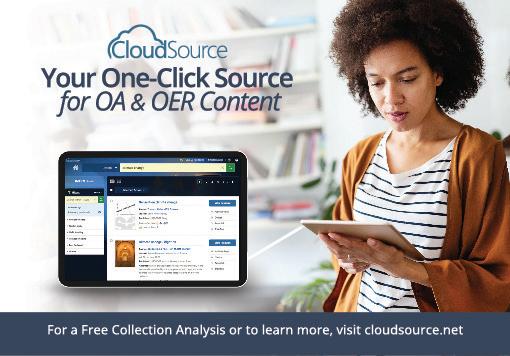
ALIA will be attending the Roundtable on AI and Copyright in late August.
ALIA also represented libraries’ interests at the Attorney-General’s AI and Copyright Roundtable in August.
Standards Australia
ALIA has created a working group for people interested in working to improve access to Australian Standards. ALIA is also working with ALIA Vocational Education
Training (VET) libraries, Council of Australian University Librarians (CAUL), Universities Australia, TAFE Directors Australia and the Copyright Advisory Group TAFE to advocate from an education perspective to address the high cost and onerous restrictions facing libraries in the provision of access to Australian Standards.
ALIA NEWS Please contact education@alia.org.au if you would like to discuss any of our advocacy efforts, we are always happy to hear from you.
Engaging with local communities about aged care reform
ALIA is partnering with the Australian Department of Health and Aged Care to share information about aged care with older people, their families and carers, in a familiar and comfortable space – their local library.
In response to the Royal Commission into Aged Care Quality and Safety, the Australian Government is making broad changes to ensure all Australians can access high quality and safe aged care, where and when they need it.
The partnership between ALIA and the department is part of a broader commitment to ensure these changes are designed in consultation with older people, their families and carers through accessible, diverse and inclusive engagement activities across Australia.
Initially, this will involve a pilot program of approximately 25 libraries around the country. Staff from selected libraries will be supported and resourced with an interactive aged care reform resource hub. These hubs will encourage engagement with older people, families and carers in the local community in a way that facilitates their awareness of and input into aged care reforms.
Participating libraries will be able to:
• access training and resources to increase staff knowledge and awareness of aged care, including information about aged care reform and where library visitors can access information about aged care services
• share digital and print information about the changes happening in aged care, including information people can take away
• engage with older people, their families and carers to gather feedback about their experiences with aged care and better understand what quality aged care means to them.

Library engagement activities will contribute to the creation of a better aged care system and a better standard of care for older people by:
• increasing public awareness about the changes occurring as part of aged care reforms and how these will benefit older people and the community
• gathering insights from people who use, or are likely to use, aged care services, such as older people, families and carers, and other stakeholders
• acting as trusted intermediaries to increase the reach and scope of aged care reform engagement by meeting older people, families and carers in their local communities.
The partnership leverages the role many libraries already play in helping people to access information about opportunities and services available in the local area. Many older people, their families and carers regularly visit libraries to access resources and take part in programs such as skills development initiatives.
22 INCITE Magazine | News ALIA NEWS
Libraries participating in the partnership have submitted a range of innovative ideas for managing and promoting their aged care reform resource hubs, and many libraries already have existing engagement initiatives in place with older people in the community.
MORE INFORMATION
To learn more about how aged care is changing, including what changes have been delivered so far, and what changes are on the way visit https://agedcareengagement.health.gov.au/
Staff from selected libraries will be supported and resourced with an interactive aged care reform resource hub. These hubs will encourage engagement with older people, families and carers in the local community in a way that facilitates their awareness of and input into aged care reforms.

ALIA NEWS News | INCITE Magazine 23
Photo: Supplied
For a better future
Behind an unassuming door in the grounds of the Milingimbi School in the Northern Territory you will find the Milingimbi Community Library. On the shelves, a collection that includes a variety of books in local language, English and LOTE, alongside books that explore the historical events of Milingimbi from the perspective of its local people. And on the walls you will find a display of newspaper articles, photographs and printed information that tell the stories of some of Milingimbi’s community leaders, local heroes and high achievers throughout the years. Some of these faces include Janet Baird who made her AFLW debut with the Gold Coast Suns in 2021, ARIA award-winning artist Baker Boy, Wirrinyga Band, and artist Sam Djimbarrdjimbarrwuy Garawirrtja who worked on the Milingimbi Easter Panel in 1965 – it’s now in the National Gallery of Australia.

The creator of this display is Jacinta Burukumalawuy Dhamarrandji, one of the local Indigenous Community Library Officers in the East Arnhem region. These officers host groups and activities at the library and develop outreach programs. They also support community members to use the library, and to access and use the internet and digital media.
But it is this wall of stories that makes Milingimbi Community Library distinctive.
‘I love watching what I’ve created right in front of me,’ Jacinta said. ‘Every day that’s what catches my eye. And sometimes I can’t get my eyes off it.’
24 INCITE Magazine | Feature FEATURE
Words Liz Bradtke and Jacinta Burukumalawuy Dhamarrandji from an interview by Cathie Warburton
Photos Cathie Warburton
Below Milingimbi School
She’s not alone in feeling this way. The stories and artwork that adorn the walls of the library are a highlight of a trip to the library for the students of Milingimbi School.
‘Every time teachers come in with their class they straight away go to that area and start reading all the stories on the wall. And the kids settle while I tell them my story.’
Engaging with the younger members of the community in this way was a key motivation for Jacinta to begin working in the library in 2014.
‘To me the library is like a knowledge centre, and I especially wanted to work with kids,’ she said. ‘I used to work as an assistant teacher in 2004 and 2010–11, and I wanted to engage with the community again.’
This desire to circulate stories, culture and knowledge within the community is something that Jacinta shares with other members of her family. Her mother worked at the Milingimbi Library in the late 80s and early 90s, and her father and late grandmother she describes as strong and respected leaders within Milingimbi and the wider region.
Jacinta’s recollections of her grandmother are of a gentle, kind and loving person who had a deep connection with the children of the area and believed none of them should be left behind.
“Before school she would feed them porridge. They had to use a stone for a bowl and a shell for a spoon. Back then they didn’t have bowls. She was a very knowledgeable person. She taught people how to weave, how to make necklaces with shells and beads.”
There is a through line to be drawn here from the cultural teaching and nurturing practised by Jacinta’s grandmother and Jacinta’s use of the library displays to address what she calls a lack of identity in the younger generation.
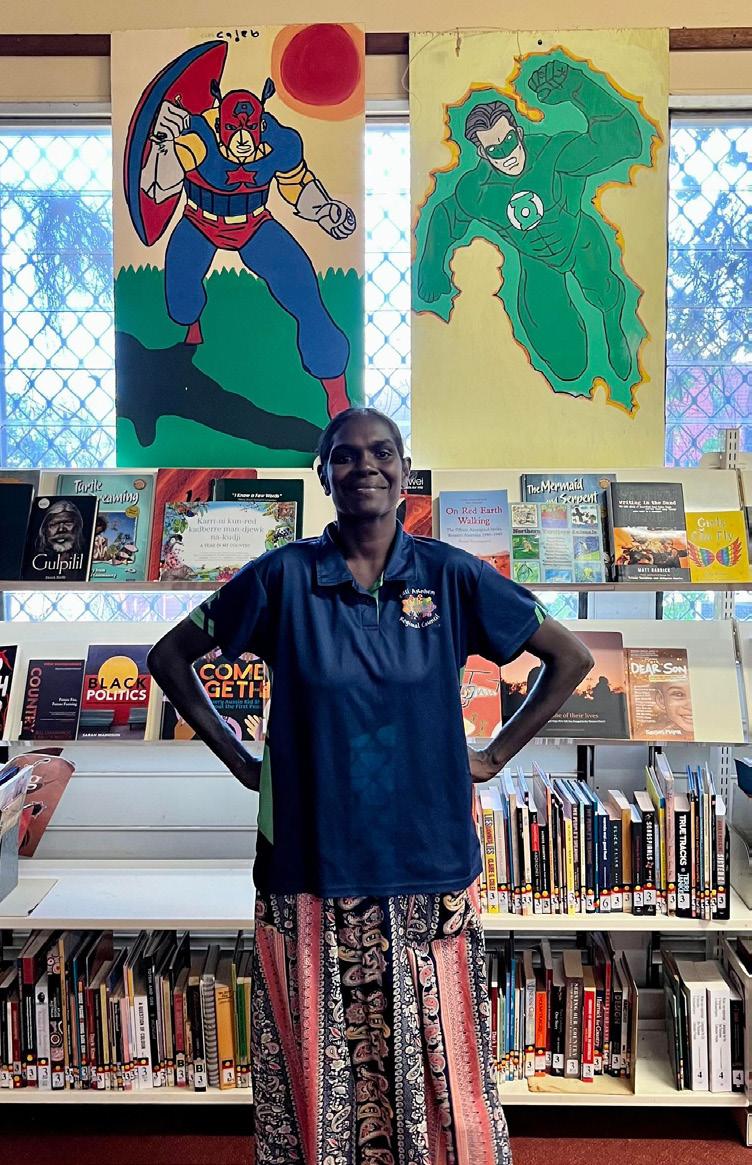
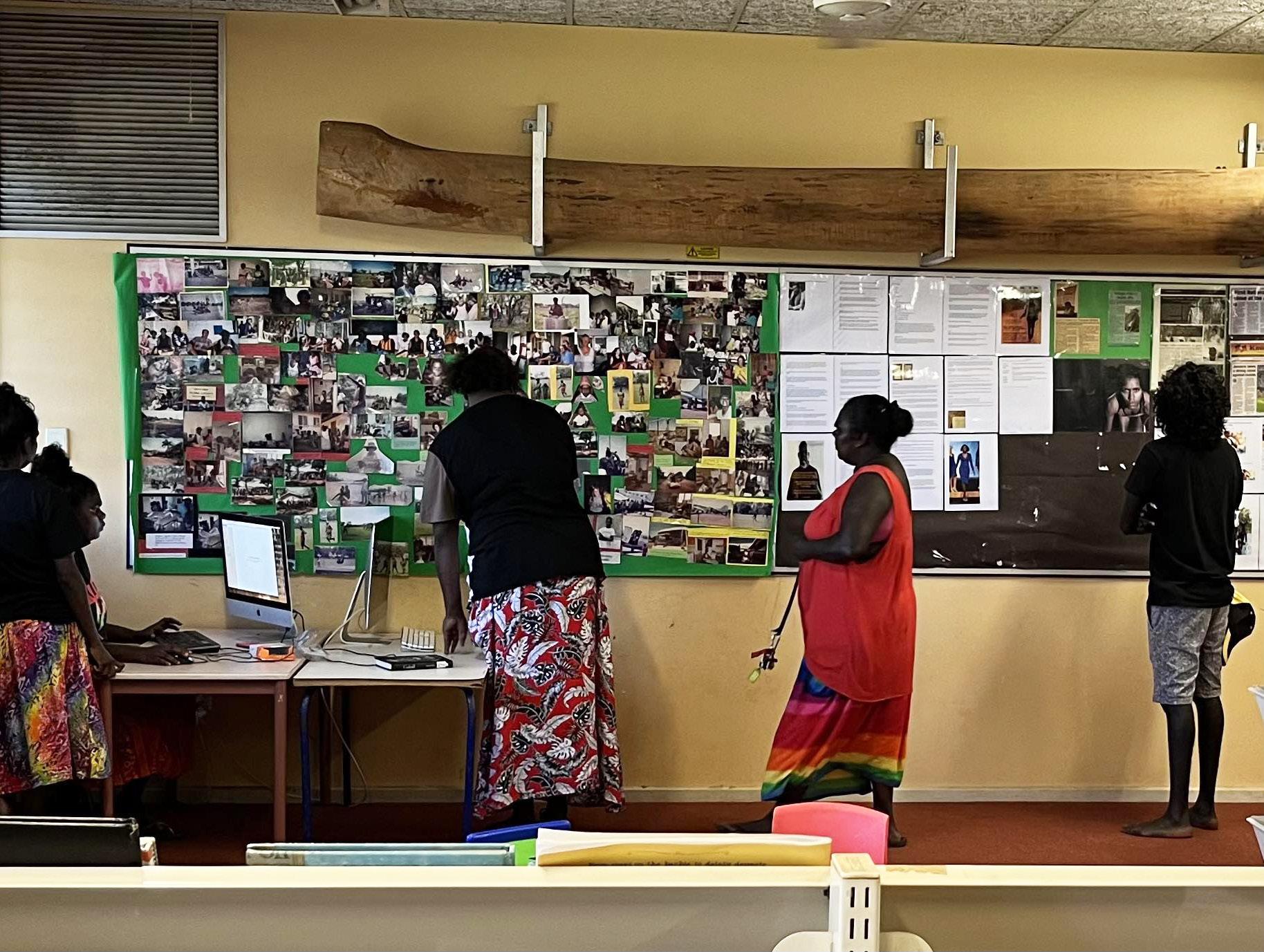
“I’ve put so much effort into the stories in the library for the sake of the kids, so that they can learn local history. Sometimes I worry because they seem to have a lack of identity – where they come from, which mob they belong to.”
Jacinta is especially interested in educating the students at the middle and upper primary level – grades 4 and 5 specifically. The stories she reads to them are based on the life of Yolngu people in Milingimbi and surrounding areas, and they are printed in local Yolngu Matha (‘Yolngu tongue’) – both Djambarrpuyngu and Gupapuyngu languages – at the Milingimbi Literature Production Centre. Djambarrpuyngu, a Dhuwal language, is the main language spoken in north-east Arnhem Land and Gupapuyngu language, also a Dhuwal language, used to be taught back in the days at school.
By sharing these stories in both languages, Jacinta hopes that the students will be empowered to teach their generations about the local history of Milingimbi and the people living on the island. “When you go home, please talk to your relatives, your family, to learn about your identity,” Jacinta tells them. “While you’re still young, it’s much easier to learn and to be taught, and in the future, you won’t lose interest in your own culture.”
Jacinta’s father, Lapulung Dhamarrandji, is similarly dedicated to passing on knowledge about Aboriginal history and culture. His image can be found on the wall of stories in the library, where he stands with the Governor-General of Australia, His Excellency General the Honourable David Hurley AC DSC (Retd), conveying his condolences on the passing of Her Majesty Queen Elizabeth II. He is pictured presenting the Governor-General with a cultural spear and woomera – a symbol of hope through a bridge of commonality within
FEATURE
Above Jacinta Burukumalawuy Dhamarrandji.
Feature | INCITE Magazine 25
Above right School staff and students from Milingimbi School.
our shared nation. He did so as part of his duties as East Arnhem Regional Council President.
‘My dad had a mission to teach his generation and others about Aboriginal culture. He left school when he was 16 and started working at Milingimbi School as a teacher before moving to Darwin and taking a job in the hospital. He then chose to do further studies at Bachelor Institute of Indigenous Tertiary Education and was studying to be an interpreter.’
According to Jacinta there were very few, if any, interpreters in the region at that time who could act as a bridge between those who spoke the local language and those who didn’t. Upon his return to Milingimbi, rather than resuming his former job in the school, he took a job with the council, where he has remained ever since.
His work does not end there, however. Jacinta’s father is part of the Wirrinyga Band, who have released two successful albums –Dreamtime Shadow and Dreamtime Wisdom Modern Time Vision The band members are Yolngu and they sing in both language and English, and mix modern instruments with traditional.
Whilst Jacinta says she has not inherited any particular aspirations as a musical performer, she has undoubtedly shared her father’s skill in expressing cultural experience, wisdom, hope and expression through music and lyrics.
‘I wrote a song that I really wanted to sing because it comes from my heart, and I want all of Australia to hear it because it’s about justice. The song title is ‘Where is the true justice?’ It asks how we can build that bridge together to make one human nation, to walk hand in hand.’
When asked if she would share the lyrics in this magazine, Jacinta readily agreed.
Where is the true justice?
Every day I see my people struggle.
The First Nations People of this land. How can we build that bridge and connect our cultures?
And where is the real reconciliation to reconcile all walks of life?
Together as one human race.
Remember, we are not different, we are all the same.
Our blood runs the same.
Where is the true justice in this land called Australia?
There hasn’t been change it’s still the same
‘I would like to share them in the magazine because then, instead of singing it, people could put the lyrics on the wall. The song is about reconciling all nations.’
Towards the end of the conversation talk turns to the other services and support provided by the Milingimbi Community Library.
‘All sorts of people come here seeking help, especially when they are struggling with online and internet banking, email and things like that. I help them with emailing, writing letters to banks, providing identification online – that sort of thing.’
When asked what kind of training and support would be most useful in continuing to offer and to build upon these services, Jacinta makes the point the geographic location and reliable internet connection can often be a hindrance to taking advantage of professional development opportunities.
‘I would like to upgrade my skills, doing library work. I would love to learn more about libraries. But travel to those places (Darwin or Nhulunbuy) by plane is too expensive.’
A bigger and more immediate challenge is reliable internet, not only in terms of online learning for library staff, but also in providing basic services for patrons.
‘The internet hasn’t been working since earlier this year. We’ve reached out for IT support but it is still not resolved and we need the computer up and going for people to use.’
Another challenge for Jacinta is staffing: ‘I work by myself nearly every day, and that is very hard for me to deal with. People from the community give me a lot of work to help them out, but it is hard with low levels of staff.’
These are challenges faced by many regional and remote library services. The 2023 Australian Digital Inclusion Index found there is a
And I wonder why our people are quickly dying.
All we want is freedom in our own fertile land.
When will we get our recognition as the first people of this land in all states and two territories?
We, the Indigenous people of Australia, have connections to the land, sea, sky and everything that holds by land.
Our songlines, our stories, and our spirit, connect to the land.
It’s about time that you people our brothers and sisters
open up your minds, heart, spirit and soul.
Then let treaty, peace and hope deep inside you by accepting us as your own kind for a better future.
Remember, we’re no different, we’re all the same.
Our blood runs the same.
26 INCITE Magazine | Feature
FEATURE
considerable digital gap between First Nations and non-First Nations people in Australia. The gap is particularly pronounced in remote locations. Outcome 17 from the National Agreement on Closing the Gap provides that ‘Aboriginal and Torres Strait Islander people have access to information and services enabling participation in informed decision-making regarding their own lives’. To achieve this outcome, regional and remote libraries need reliable internet services, targeted support through training grants for library staff, and increased budgets for staffing and developing collections.
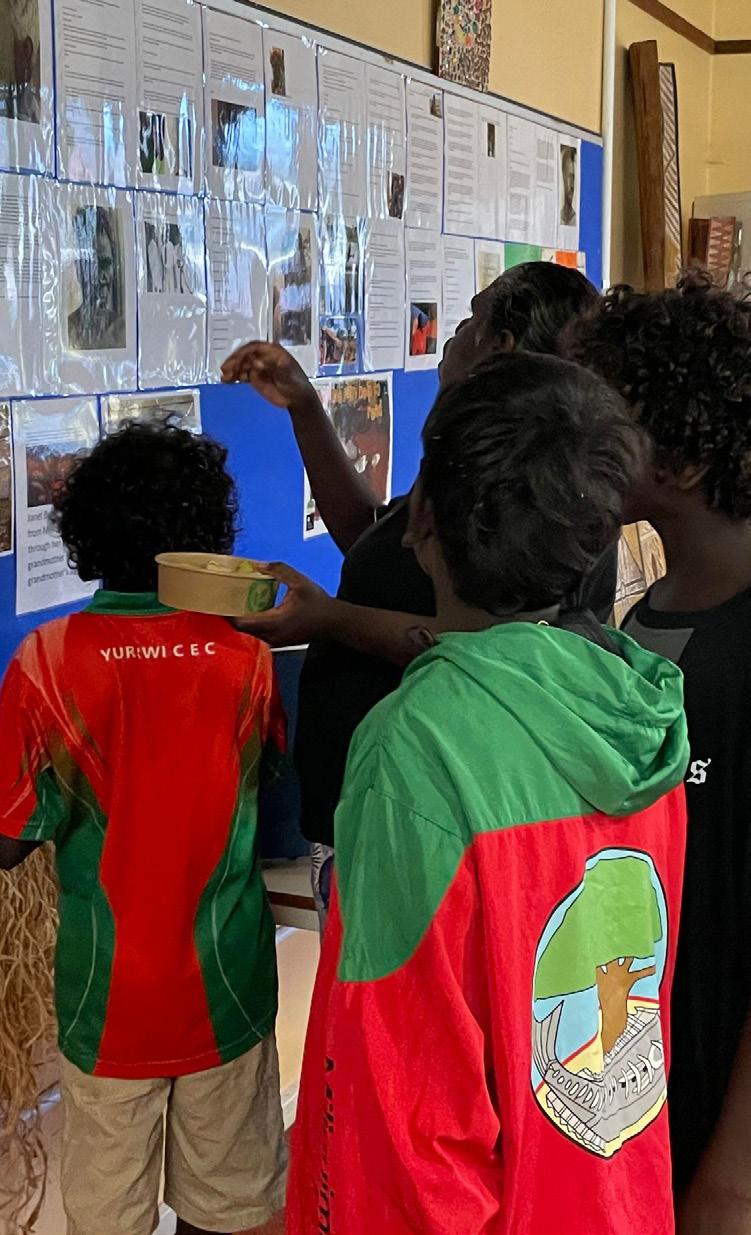
The phrase ‘the power of storytelling’ is by now all too often used in the Western tradition to demonstrate or explain the value of individual people and products. But for this library, storytelling is defined by its relationship to a sense of completeness, reconciliation and identity, both in personal and collective contexts. We see this in the display on the library wall, which brings together past and present in mutually reinforcing ways. We hear it in the stories, skills and cultural knowledge passed down by Jacinta’s father and grandmother, and in the lyrics of Jacinta’s song – one which calls for the reconciliation of all walks of life.
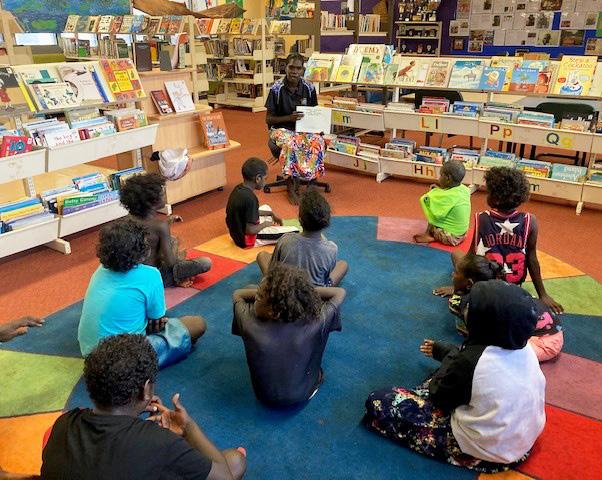
A sense of completeness is a hope she has for herself and her own story, too.
‘I would really like my story to be out there,’ she said. ‘It would make me feel whole.’
Feature | INCITE Magazine 27 FEATURE
I’ve put so much effort into the stories in the library for the sake of the kids – so that they can learn local history. Sometimes I worry because they seem to have a lack of identity, where they come from, which mob they belong to. So I tell them, when you go home, please talk to your relatives, your family, to learn about your identity. And while you’re still young, it’s much easier to learn and to be taught, and in the future you won’t lose interest in your own culture.
Below Children from Milingimbi School exploring the display.
Below Jacinta reading to students of Milingimbi School.
A tale of two libraries: touring Singapore’s

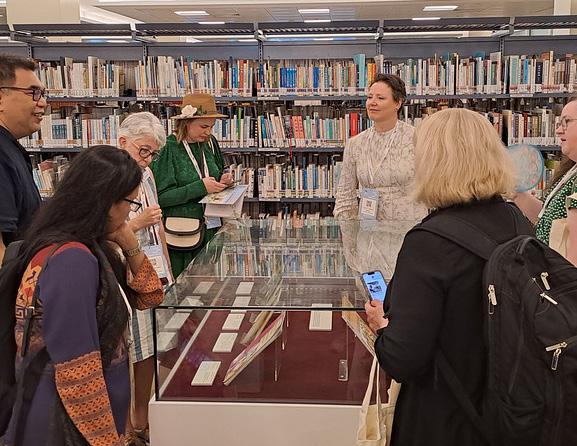
network of regional libraries
By Claire Stuckey AALIA
In May this year, 10 members of the International Federation of Library Associations (IFLA) Libraries for Children and Young Adults (C&YA) Section attended the Asian Festival of Children’s Content in Singapore, coinciding with the Section’s mid-term meeting. More than 100 international writers and speakers attended the event and shared exciting and interesting presentations over four days at the National Library. Six members of the C&YA Section presented papers on a variety of topics including translation, graphic novels and the UN Sustainability Goals. Other speakers explored the theme of Play across 70 programs, using books, stories and performances.
Section member and head of the National Library Board (NLB) Children & Teens Services Huey Bin Heng scheduled visits to the NLB’s network of regional libraries for the 10 IFLA Section members, including a tour of the new Punggol Regional Library and the Asian Children’s Literature Collection at Lee Kong Chian Reference Library.
Opened in early 2023 and providing services for a population of approximately 174,000, the Punggol Regional Library is a space in
which every aspect of accessibility and inclusivity has been addressed. Rooms for children are bright and spacious. Special areas such as a calm pod and family room add real comfort for families. The numerous special collections, such as overseas books for children, are available in a range of languages. The ‘World and Us Zone’ on Level 2 is divided into international regions for easy access, and structured play and areas such as Storyteller Cove enable children to explore story development and literature. A special area developed with the Smithsonian Institution Spark!Lab™ provides hands-on STEM activities for children – a popular space, especially on weekends.
Other areas include the Toy Library on Level 1, where families can sit and play with resources that can be hygienically cleaned before and after use. All collections, including Early Literacy, picture books and non-fiction, contain resources in multiple languages including Malay, Chinese, Tamil and English, reflecting the diversity of Singapore’s population. The TeenSpace on Level 3 provides a relaxed area for reading with a well-resourced collection that includes graphic novels.
Above Claire Stuckey (IFLA C&YA Section member) at Punggoll Regional Library.
Photo: supplied
IFLA colleagues viewing some of the more precious titles in the Asian History Collection.
FEATURE 28 INCITE Magazine | Feature
Photo: supplied
The section members also enjoyed their tour of the Asian Children’s Literature Collection at Lee Kong Chian Reference Library. Children’s books from China, Korea, Japan and other Asian countries such as Indonesia and Malaysia are collected with a focus on the transmission of values like filial piety, respect and honour. The library also has a curated collection comprising about 5,000 books produced from 1890–1990. This historic collection was recognised in 2022 by the UNESCO Memory of the World Committee for Asia and the Pacific (MOWCAP) as an indelible part of the region’s culture and heritage. The collection contains some fabulous examples of internationally recognised titles, including numerous examples of the poem about Mulan, believed to have been composed during the Northern dynasties period (北朝, c. 386–581). An article on this topic in BiblioAsia, the National Library’s own journal, can be found here. The collection is open for research and reference.

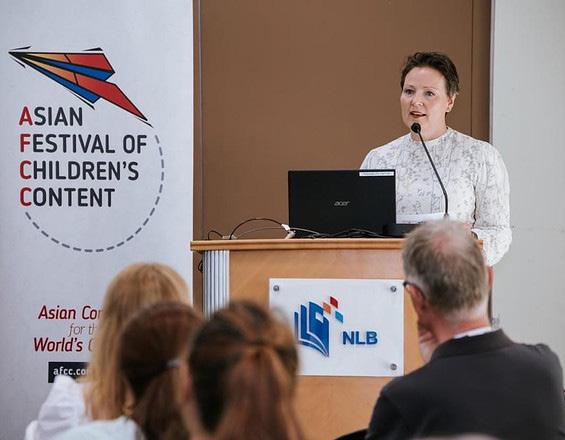 Above Linn T Sunne (IFLA C&YA Section member) presenting at the AFCC. Photo: supplied
Above Linn T Sunne (IFLA C&YA Section member) presenting at the AFCC. Photo: supplied
FEATURE
Celebrating new books in First Nations languages
By Janet Hutchinson, Indigenous Literacy Foundation Lifetime volunteer
Each year, on the first Wednesday in September, Indigenous Literacy Day (ILD) events are held all over Australia – in libraries, schools, workplaces and a wide range of other community settings.
An initiative of the Indigenous Literacy Foundation (ILF), a national charity that works with remote Aboriginal and Torres Strait Islander communities, the day celebrates the richness and diversity of First Nations stories, cultures and languages.

For many years, the biggest (by far) ILD celebration was the one hosted by the ILF and held at the Sydney Opera House, with school children and their teachers coming from across Sydney to join in the harbourside festivities. The 2020 and 2021 lockdowns of the COVID-19 pandemic, however, made for some very big changes to ILD. In both those years the ILF team created digital events, which meant the celebrations could for the first time be enjoyed by anyone with online access. There were 91,700 registrations in 2020, by schools, early learning centres, and other organisations and individuals keen to take part online.
By 2022, ILD was back at the Sydney Opera House – but in a further development there was also a digital event for those around Australia. Online registrations more than doubled from those of 2021 to around 200,000 – a clear indication of the growing reach of the event.
Online or not, each year ILD celebrations have focused on a children’s book, written and illustrated in a remote community and published by the ILF.
This year’s free event, which took place on Wednesday 6 September, included a livestream and a 15-minute film where not one but three new picture books were showcased. The film took viewers on a virtual plane trip to three remote communities – Barunga in the Northern Territory, Napranum on Cape York Peninsula in Far North Queensland and Rubibi (Broome) in Western Australia – to get a look behind the scenes into the making of these books.
Shordi Krik (Shorty Creek) was launched at the Barunga Festival in mid-June 2023.
ILF Lifetime Ambassador Justine Clarke (of ABC TV’s Play School), who had collaborated
30 INCITE Magazine | Feature FEATURE
ILF stars Derek from Tiwi Islands and Dean from Jilkminggan with ILF Ambassador Jessica Mauboy at Indigenous Literacy Day 2022.
with this community for seven years, worked closely with teachers and students at Barunga School to create the lyrics of the song featured in the book, in Kriol and English. The illustrations depicting the fun to be had down at the local creek were developed via digital workshops with Alison Lester AM, renowned and much-loved children’s author and another ILF Lifetime Ambassador.
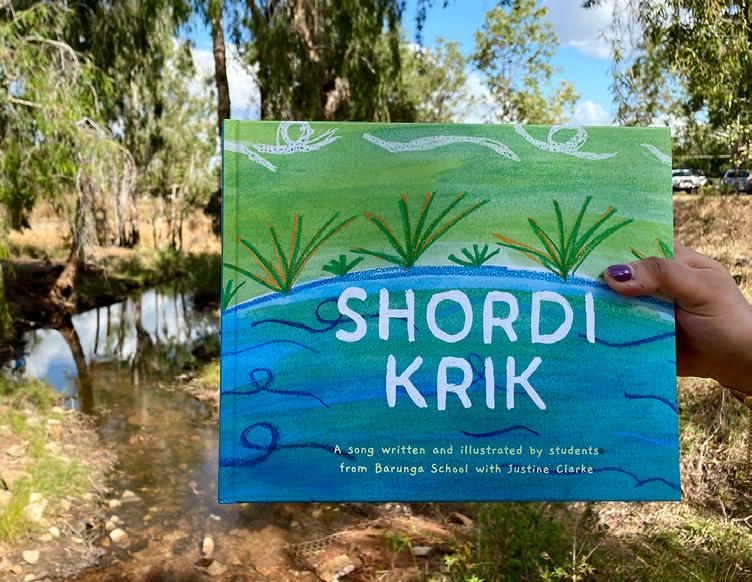
We Look, We Find, a picture book in Thaynakwith and English, was written and illustrated by women and children from the Napranum community during a 2021 workshop, after the ILF was approached for support.
Country Tells Us When… was developed by four educators from Rubibi (Broome) who wanted to create a book about the seasonal changes of the Kimberley, so that students could see their lives and cultures reflected in a book. They reached out to the ILF for assistance, and the book has been written in Yawuru and English.
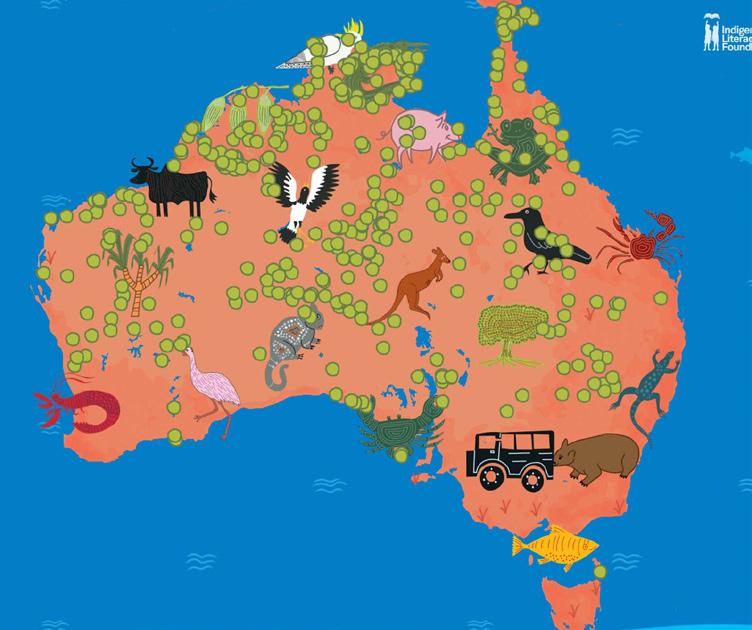
During the course of the film, those watching got the chance to learn a few words in each of the three First Nations languages these books have been written in.
As Ben Bowen, CEO at ILF points out: ‘Many Australians know at least the basics of another language other than English, but very few know how to say even “hello” in an Aboriginal or Torres Strait Islander language.’
This year, 2023, is the second in the United Nations International Decade of Indigenous Languages. ILF’s Co-Patron June Oscar AO, who is also the Aboriginal and Torres Strait Islander Social Justice Commissioner at the Australian Human Rights Commission, is from Fitzroy Crossing in the East Kimberley region. As one of only 50 Elders who speak Bunuba, she stresses the importance of children in remote communities having
access to books in their first language.
‘Languages are entwined with cultures and the work that the ILF does to support the publishing of stories in first languages helps keep our culture alive,’ she said. ‘When children see books in their language, it strengthens their identity and keeps language strong in communities across the country.’
Week-long celebrations
At Cunnamulla Library in south-western Queensland, Indigenous Literacy ‘Day’ was celebrated with no less than five full days of activities. Tammy Hickey, Library Services Team Leader at Paroo Shire Council, called it Indigenous Literacy Week! Classes from both schools in Cunnamulla – Cunnamulla State School and Sacred Heart Primary School –came to the library for story time, and this year students from Eulo State School made the 40-minute journey into Cunnamulla to take part as well. No one left empty handed, with each child choosing a book from ILF’s Book Supply program to take home.
It is critical that, no matter where they live, Aboriginal and Torres Strait Islander children are able to see their own lives reflected in the books they read and the stories they are told. In 2023, the ILF continues to build awareness among the wider Australian population of the strengths, knowledges and wisdoms held within remote Aboriginal and Torres Strait Islander communities.
There are plenty of ways in which libraries can take part in Indigenous Literacy Day celebrations and hear stories from remote First Nations communities, while also supporting the work of the Indigenous Literacy Foundation.
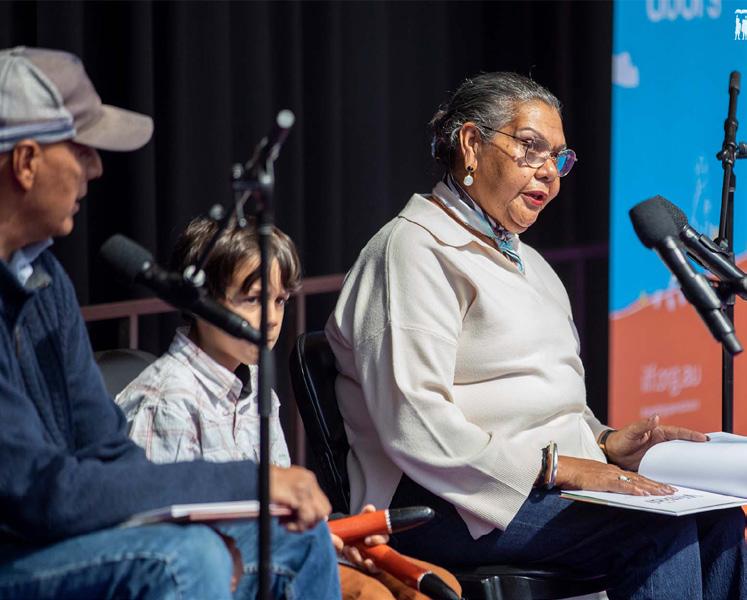 Janet Hutchinson Indigenous Literacy Foundation Lifetime volunteer
Janet Hutchinson Indigenous Literacy Foundation Lifetime volunteer
Feature | INCITE Magazine 31 FEATURE
It is critical that, no matter where they live, Aboriginal and Torres Strait Islander children are able to see their own lives reflected in the books they read and the stories they are told.
ILF Co-Patron June Oscar AO (right), Joe Willigan Ross (left) and Remi Nyandat Ross (middle) reading Winthali at the Sydney Opera House in 2022.
Photo: Joseph Mayers
Since 2011, the ILF has worked with more than 400 remote Aboriginal and Torres Strait Islander communities. There is an interactive map on our website ilf.org.au to learn more.
Photo: Joseph Mayers
ILF new publication Shordi Krik book at the creek that the book and song is about.
Photo: Joseph Mayers
Connecting queer readers
By Lauren Francis
The City of Melbourne Libraries Queer Book Club meets monthly to discuss queer books, share experiences and connect with the queer community. This vibrant group celebrates its fifth anniversary in 2023.
It succeeds several Queer Reading Circles that City of Melbourne Libraries held as part of Midsumma Festival from 2015 to 2017. With no assigned book, these were an invitation to come along and talk about favourite queer books. In practice, however, we found that participants were seeking assistance with finding queer books and social connection. When we later established an ongoing Queer Book Club, I proposed that we discuss a shared book at each meeting. This has made the group more accessible for new members with little initial knowledge of queer books, expanded participants’ reading choices, and created space for deeper conversations about shared reactions and life experiences. To my delight, these conversations have led to many friendships among members.
Queer Book Club reads broadly: any book related to lesbian, gay, bisexual, transgender, intersex, asexual or queer lives – be that author, character or topic. At our first meeting I provided a selection of queer books for inspiration and the group voted on a reading list. We have followed this pattern since, voting on the following year’s list in November. While the group initially
relied heavily on my suggestions, their confidence has grown and now participants suggest most titles. I do take an active role in designing the reading list, both to encourage a diversity of books and to check that each is easily accessible. In the early days I suggested recent or award-winning titles available at most libraries or cheaply secondhand, such as Girl, woman, other or Maurice. We have also read texts available freely online, for example Nevada. Recently I purchased suggested titles for the collection, which offers interconnected benefits of accessibility and collection development.
Library and information studies research on the experiences of queer adults tends to focus on the inclusion of queer material in the collection, and consider collection usage and library programming separately. The literature on queer programming in public libraries tends to centre rainbow families and queer youth. There is little discussion of ongoing programming for queer adults, but in practice it offers many benefits for libraries and queer communities.
It is not enough for libraries to possess diverse collections, we must also encourage and support reader engagement in effective and broad-reaching ways. Book clubs are reader development in action: they create regular space for reading in participants’ lives, nurture relationships, and increase
reading confidence and choice. Queer Book Club engages readers with queer stories, providing affirmation and connection, and those readers go on to suggest titles for the next year’s reading list, further diversifying the collection for everybody. The group also suggested titles for an Essential Queer Reads list, which was promoted through bookmarks and the library website.
One of the most significant benefits of queer library programming is typified by Queer Book Club’s name. Although the term ‘queer’ has been criticised as a slur, it is also used as an inclusive umbrella term, and I deliberately used it for the book club in order to invite people often turned away from gay or lesbian spaces – bisexual, trans and/or asexual people – and to welcome a variety of identities and experiences. While the vast majority of the participants identify as LGBTIQA+, the group is open to all, ensuring that those questioning their sexuality or gender can attend without having to ‘come out’. Survey feedback indicates this diversity is highly valued by members of the group: comments have emphasised that they enjoy the opportunity to talk to other queer people about queer issues, to socialise with other queer people of different backgrounds and experiences, and to hear diverse perspectives. These perspectives are sometimes at odds, and our discussions can raise deeply personal
QUEER BOOK CLUB 32 INCITE Magazine | Feature

QUEER BOOK CLUB Feature | INCITE Magazine 33
Photo:Supplied
issues. Proactive and sensitive facilitation by a member of the queer community is vital. Although I cannot personally represent each letter of the LGBTIQA+ acronym, I do use my own experiences and knowledge as a queer woman to connect with participants, anticipate fraught topics and maintain a respectful conversation. I encourage differing opinions, but clearly state that it is not appropriate to question other people’s sexual or gender identities. This has been a successful approach, exemplified by recent participant feedback telling me that ‘you have really made this a diverse and safe space to have conversations that are often difficult to have with each other in our community’.
In fact, Queer Book Club is an unusual queer event in several ways. Open to all, it draws participants aged between 16 and 80, and creates a vital space for intergenerational connection, understanding and support. Participants have also repeatedly told me that alcohol-free, in-person queer events are rare and valuable, and so we meet in the library, returning to in-person meetings as soon as possible after lockdown.
While many presume that Queer Book Club has no facilitator, or is volunteer-run,
there are significant benefits to facilitation by a library staff member. These include a free library meeting space and access to general library marketing channels, which reach a wide variety of prospective members. It also gives the facilitator access to formal organisational support when enabling difficult conversations takes an emotional toll. This structural support helps to ensure the group’s long-term sustainability.
New queer book clubs have such potential – online groups that can be more accessible for some, or groups that focus on particular identities, such as transgender and genderdiverse book clubs. At a time when the queer community is increasingly under attack, it is more important than ever to develop and support queer library programming. With threats against rainbow LGBTQIA+ programs both here and internationally, it’s important not to lose sight of the many benefits of these programs: intergenerational community connection, engaged readers, and a more diverse and representative collection for all.
 Lauren Francis New Library Collections Project Librarian City of Melbourne Libraries lauren.francis@melbourne.vic.gov.au
Lauren Francis New Library Collections Project Librarian City of Melbourne Libraries lauren.francis@melbourne.vic.gov.au
QUEER BOOK CLUB 34 INCITE Magazine | Feature
Photo: supplied
Gale OneFile: Australia and New Zealand

Now includes Australian Broadcasting Corporation Content
Featuring Gale’s authoritative and continuously updated reference material and focused on an Australian and New Zealand perspective, this user-friendly database organizes over 850 fulltext publications including ANZ periodicals, magazines, academic journals, ANZ news articles, images, videos and audio files. Organise a 30-day free trial today!


Gale Books and Authors - highlighting Australian Authors
Powered by Gale’s popular What Do I Read Next? series, Gale Books & Authors helps to connect readers with books. Among many benefits to your library, it can increase circulation of fiction and non-fiction, build and promote book clubs and programs in your library and help patrons make informed reading choices. Since November 2021, we have been working with an Australian librarian as our local ANZ Subject Matter Expert and we have now added over 400 new Australian and New Zealand titles and authors for ANZ Libraries
To learn more email anz.gale@cengage.com Elise Baldwin Darren
Hellen Pervushin Adeline Regnault QLD/NT/NZ TAS VIC/SA/WA NSW/ACT 0439 772 155 0419 881 973 0413 873 364 0434 605 960 elise.baldwin@cengage.com darren.brain@cengage.com hellen.pervushin@cengage.com adeline.regnault@cengage.com
Brain
Speak to your Gale Account Manager to arrange a free 30-day trial or discuss how a Gale local content solution will meet your library community’s needs.
Mapping the open access landscape in Australasia
By Janet Catterall and Virginia Barbour
Open access (OA) is a set of principles and practices through which research outputs are distributed online, free of cost or other access barriers. Through licensing via an open licence (usually Creative Commons), freely available outputs can also be legally shared and reused. Therefore, open access is more than just free access. OA is grounded in the belief that knowledge should be freely and equitably available to all. Openly accessible research fosters global collaboration, accelerates innovation, promotes engagement with the public, and increases the visibility and impact of the work of researchers.
Over the past 20 years, OA has evolved from a set of aspirational principles to a diverse range of practices and policies that span the entire publishing ecosystem of journals, books and data, and which includes
new and older models of publishing. This open landscape is now diverse and complex.
Open Access Australasia (OAA) is the foremost advocacy organisation for OA in this region and has tracked developments in OA since 2013. To date there has been no overarching examination of OA practice in Australia and Aotearoa New Zealand. An inventory of this kind is needed to assess our progress towards OA. This is more necessary than ever as national and international organisations show increasing commitment to open research following the 2021 UNESCO Recommendation on Open Science

Last year, OAA undertook a specific project to map this landscape. We investigated 187 research active institutions across four sectors in the ANZ region to see what OA initiatives were being practised at the institutional level. We
looked at universities and compared them with research institutions in the health, government and non-profit sectors to see if approaches to open access differed. We found that – unsurprisingly –universities had the greatest number of OA initiatives per institution but that the government sector showed considerable use of open repositories. The health and non-profit sectors showed much less OA practice at the institutional level. Across all sectors we found less publicly available OA policies than expected, fewer that dealt with open data, and very few policies showed any understanding of the issues around making Indigenous research and data open. Position statements were almost entirely absent. Repositories were ubiquitous for universities, often used by government research institutions for publications, grey
36 INCITE Magazine | Feature FEATURE
literature and data, but mostly lacking for the other two sectors. Open publishing was mostly practised by the universities.
Interestingly, when we compared individual OA practice to the average rate of open research outputs using the Curtin Open Knowledge Initiative Open Access Dashboard, we found no obvious association between OA practice and OA outputs at the institutional level. Universities with the greatest number of OA initiatives per institution had the lowest average rate of open research output of any sector. Health had a significantly greater average rate despite having the least OA practice in terms of initiatives per institution.
All sectors utilised diverse routes to open access including various kinds of open journals, different types of repositories, preprints and other internet avenues.

Different sectors varied in their use of these multiple pathways. More than one route was often used simultaneously, resulting in considerable overlap. This makes it difficult to say definitively which routes to open access are used the most by any sector.
We also looked at regional support for external, international OA initiatives, and found it to be very low, except where it was coordinated by a central consortium such as CAUL
Janet Catterall Senior project officer Open Access Australasia janet@oaaustralasia.org
 Virginia Barbour Director Open Access Australasia director@oaaustralasia.org
Virginia Barbour Director Open Access Australasia director@oaaustralasia.org
Feature | INCITE Magazine 37 FEATURE
is
a CC BY 4.0 licence DOI.
The report
published under
Digital is not always accessible
By Dr Jo Kaeding and Dr Agata Mrva-Montoya
Sam loves stories but hates reading print. His dyslexia means that by the time he has decoded the words on the page he has lost the narrative of the story.
Enid has always loved reading but since her stroke she can no longer hold or manipulate objects, so using her e-reader is no longer an option.
Tom was once an avid reader, but his dementia has significantly impacted his ability to understand and remember what he has read. As a result Tom can no longer read.
What do all these readers have in common? They all experience a print disability. People with print disabilities include people who cannot access information in print, because they:
• are blind or vision impaired
• have physical disabilities that limit their ability to hold or manipulate information in a printed form
• have perceptual or other disabilities that limit their ability to follow a line of print or which affect their concentration.

(Round Table on Information Access for People with Print Disabilities, 2023.)
There are no recent figures on how many people experience print disability in Australia. Data from the Australian Bureau of Statistics from 2009 indicate that almost 400,000 Australians identified
as experiencing blindness or low vision, almost 700,000 Australians experienced intellectual or developmental disorders, and an estimated two million Australians experienced dyslexia (Fitzgerald et al., 2015). These figures do not include those who experience difficultly physically handling information in the printed form. What is clear is that in 2009 (14 years ago) more than three million Australians had print disability. These are staggering figures, but perhaps not surprising when we consider that around one in six Australians experience disability (Australian Government. Australian Institute of Health and Welfare, 2022). Moreover, 44% of adult Australians experience low literacy levels (Australian Government, 2023).
As librarians we are passionate about accessibility and we know that our libraries have an important role in providing access to information for people with print disability. In public libraries throughout Australia, you will find large-print books and audiobooks, ebooks and e-audio. Despite this, what has been referred to as the ‘book famine’ continues for people with print disability. It is estimated that less than 7% of all published material worldwide is fully accessible (International Federation of Library Associations and Institutions, n.d.).
Unfortunately, not all digital resources or reading platforms are created with
38 INCITE Magazine | Feature FEATURE
Reading a braille book. Shutterstock
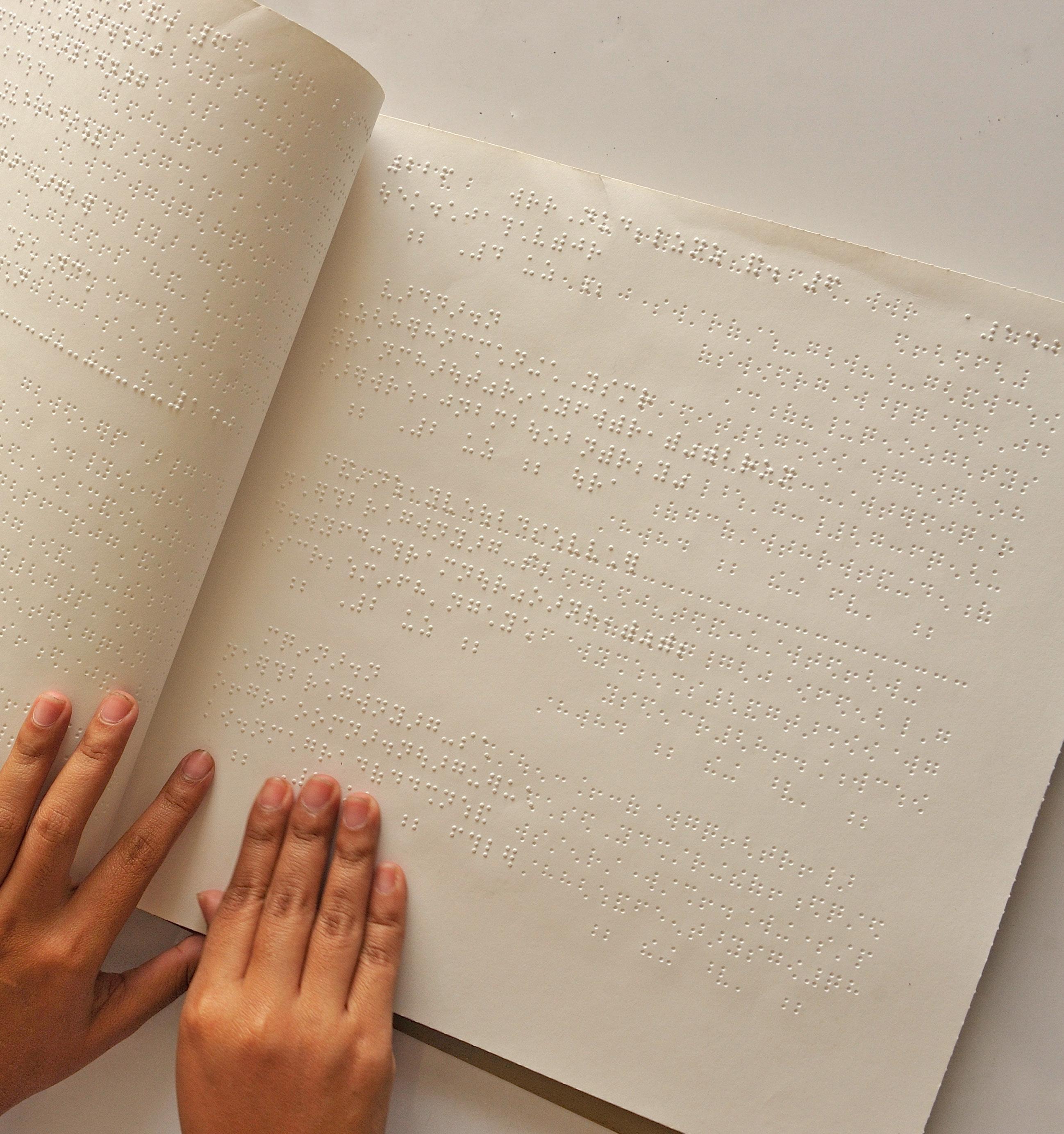
Feature | INCITE Magazine 39 FEATURE
accessibility built in. To be accessible, digital content and websites should be compatible with assistive technologies (e.g. screen readers or eye-gaze technology), and include accessibility features, i.e. alternative text description for visual content. This is often referred to as ‘born accessible’ publications. In other words, when the digital file is created, it is created as accessible from the beginning. It does not need to be converted into an accessible format later – a process that is more expensive and time-consuming.
This year marks the 10th anniversary of the Marrakesh Treaty. The Marrakesh Treaty was developed to address the barriers to information that people with print disability face. It is a copyright treaty that allows libraries to copy and distribute works in an accessible format for people with print disability (World Intellectual Property Organization, n.d.). This means libraries can arrange for a print book to be converted into an accessible format for a borrower with print disability; they can also share the accessible copy with other libraries.
In 2019, the European Union went even further and introduced the European Accessibility Act, which required
and information services for people with disabilities note the need for accessible resources for people with print disability. However, there are currently no best practices for digital accessibility in Australian public libraires.
So, how do public libraries address these barriers? What can librarians do to ensure people with print disability have access to information in libraries? What do librarians understand about print disability and accessibility in Australian public libraries? This is the topic that we are exploring.
The aim of our research is to develop a greater understanding of accessible services and resources that are currently available in public libraries in Australia. We are investigating the understanding that public librarians have of access to information for people with print disability, and what are the barriers that public libraries experience in providing access.
It is our goal that understanding the key drivers and barriers to the provision of accessible resources and services in the Australian public library system will help end the ‘book famine’ for people with print disability.
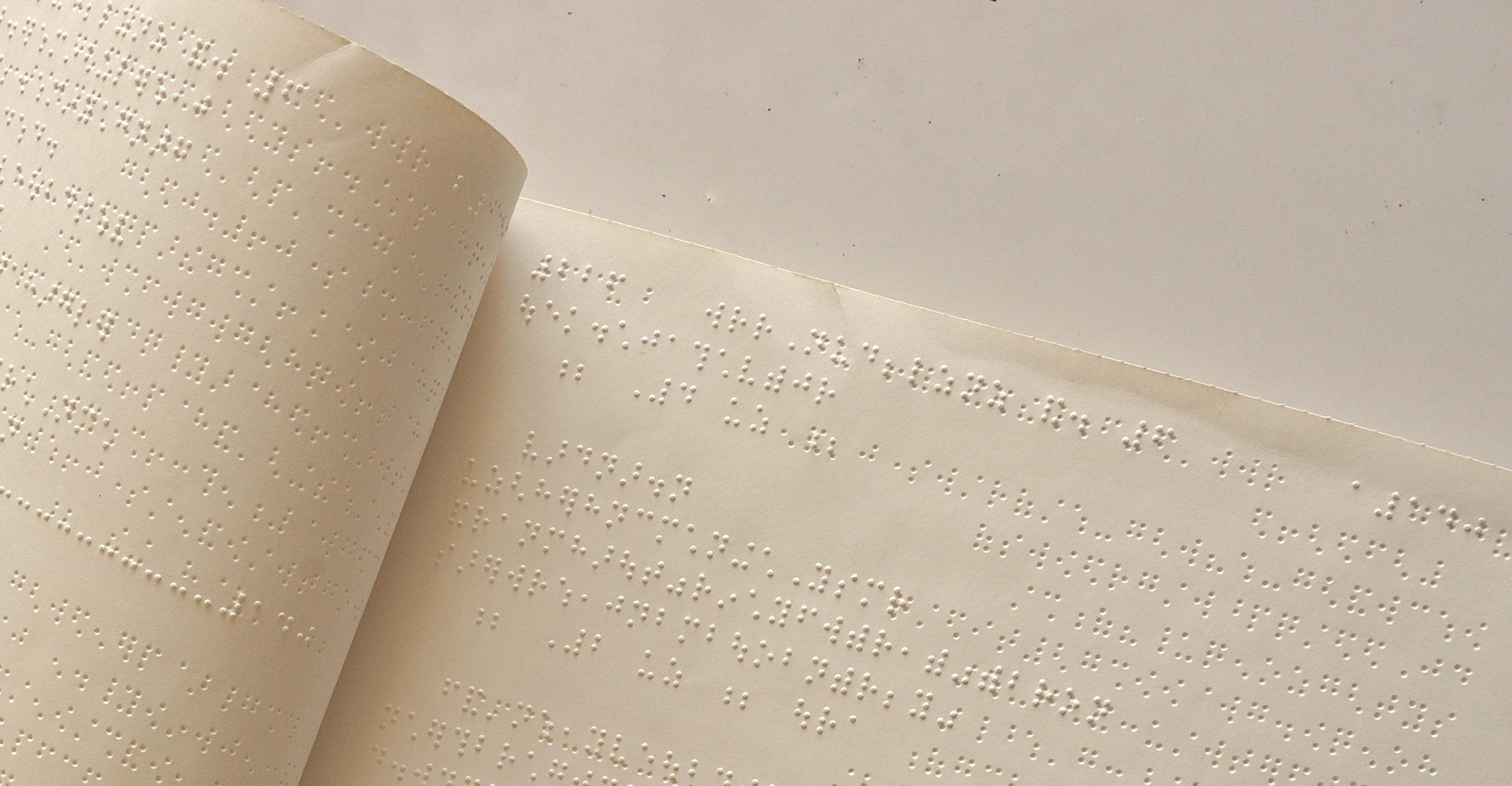
Reference List
Australian Library and Information Association. (2019). Guidelines on library and information services for people with disabilities. ALIA. https:// read.alia.org.au/sites/default/files/ documents/guidelines_on_library_ and_information_services_for_ people_with_disabilities_0.pdf
Australian Government. (2023). Literacy and access. Style manual https://www.stylemanual.gov.au/ accessible-and-inclusive-content/ literacy-and-access
Australian Government. Australian Institute of Health and Welfare. (2022). People with disability in Australia https://www.aihw.gov. au/reports/disability/people-withdisability-in-australia/contents/ people-with-disability/prevalence-ofdisability
Fitzgerald, B., Hawkins, W., Denison, T. and Kop, T. (2015). Digital inclusion, disability, and public libraries: A summary Australian perspective. Accessibility for Persons with Disabilities and the Inclusive Future of Libraries, 40, 213-236. Emerald Group Publishing Limited. https://doi.org/10.1108/S0065283020150000040019
International Federation of Library Associations and Institutions. (n.d.). Libraries serving persons with print disabilities section. https://www.ifla.org/units/lpd/
Mrva-Montoya, A. (2022). Towards “Born-Accessible” Educational Publishing. Pub Res Quarterly, 38, 735–748. https://doi.org/10.1007/ s12109-022-09922-0
Round Table on Information Access for People with Print Disabilities. What is a print disability section. (2023). https://printdisability.org/ World Intellectual Property Organization. (n.d.). Celebrating 10 years since the Adoption of the Marrakesh Treaty! https://www.wipo.int/marrakesh_ treaty/en/
40 INCITE Magazine | Feature FEATURE

A sneak peek into the school library:
behind the scenes with the team at St Andrew’s Cathedral School
August 23 was the second Australian School Library Day that celebrates and highlights the glorious variety of things that school library staff do –especially those things that may be hidden from view but are so essential to the far-reaching web of impact the school library has in any learning environment. In this article, the team at St Andrew’s Cathedral School – an independent Anglican school, founded in 1885 and located in the heart of Sydney’s CBD – takes us behind the scenes and unpacks just what it is that each person in the team does to make their libraries (and yes, there are several) such invaluable places of development for the students.

BEHIND THE SCENES 42 INCITE Magazine | Feature
Photo: Wikimedia
Kathryn Eyre
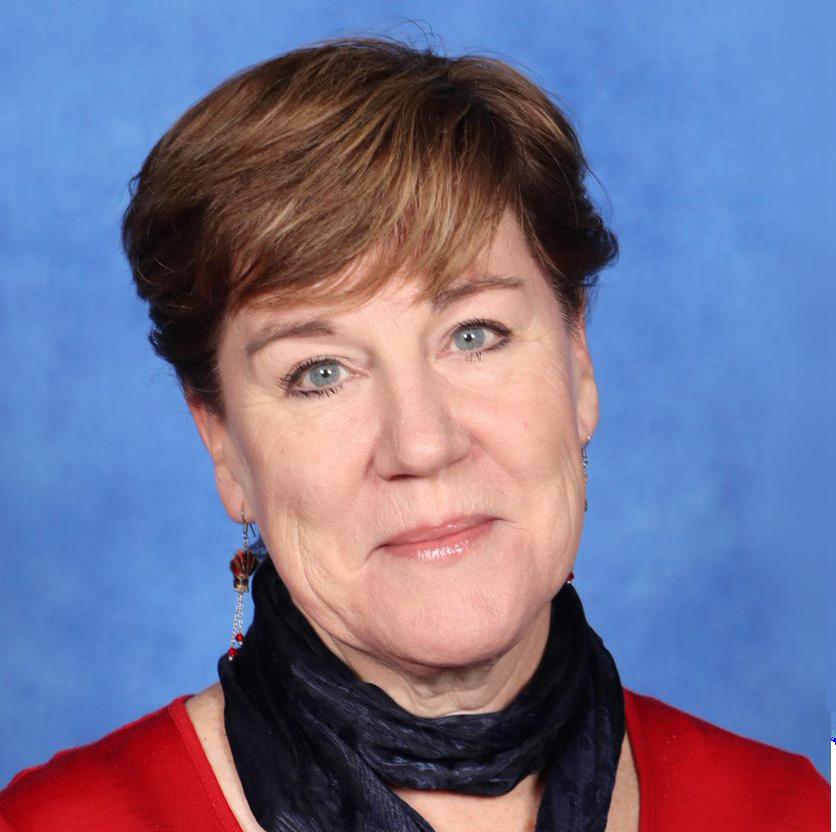
As I was an avid reader from a young age, it is no surprise that I have ended up in a role surrounded by books and libraries. I had a house full of books, as well as a willing parent to drive me to the local library. I came to teacher librarianship after training and working as a high school teacher of ESL and Japanese. My teaching career – as well as my childhood – clearly demonstrated to me the importance of quality literature for our young people, and how exposure to reading assists with literacy and wellbeing. My current role encompasses ensuring students at St Andrew’s Cathedral School are exposed to quality literature, innovative literacy programs, and a range of events and author/illustrator experiences. Also core to our role is the wider school community. Our teachers and other staff members are included in our activities and our collection caters for them as well. Parents are, of course, the final piece in the puzzle and their involvement is also encouraged.
Gail Staples

Teacher librarian, learning coach, Christian integrator
My current role is a Years 7–9 teacher librarian, working in one of three libraries across the school. Together, the Secondary library team plans and facilitates events, adapts/writes policies, manages a library social media account and the school community communications, and we share planning and teaching of classes, working on a flexible timetable. TLs have a bird’s-eye view of teaching and learning, and can see the curriculum links across disciplines. The uniqueness of our role is the opportunity to facilitate connections that maximise student learning. This is just one of the many reasons that I continue to delight in my work as a teacher librarian.
My role in the Senior College at St Andrew’s Cathedral School has offered me innovative ways to be a teacher librarian. While the library is a centralised place for independent study and recreational reading, there is no class space; so, when I work with classes and subject teachers, I go to them! Being in the classrooms where students are ‘at home’ has been a valuable learning experience for me, giving me insight into diverse teaching and learning methods, collaborating with the teacher to help students meet the outcomes of a given task and learning alongside the students. Being a ‘wandering librarian’ has added a unique element to my role, one which I have grown to appreciate.

BEHIND THE SCENES Feature | INCITE Magazine 43
Head of library (7–12) / extended essay coordinator
Tabatha Paterson Teacher librarian
… ensuring students at St Andrew’s Cathedral School are exposed to quality literature, innovative literacy programs, and a range of events and author/illustrator experiences.
Nicole Cotter Head of junior school and Gawura library / coordinator of iInformation and digital literacy
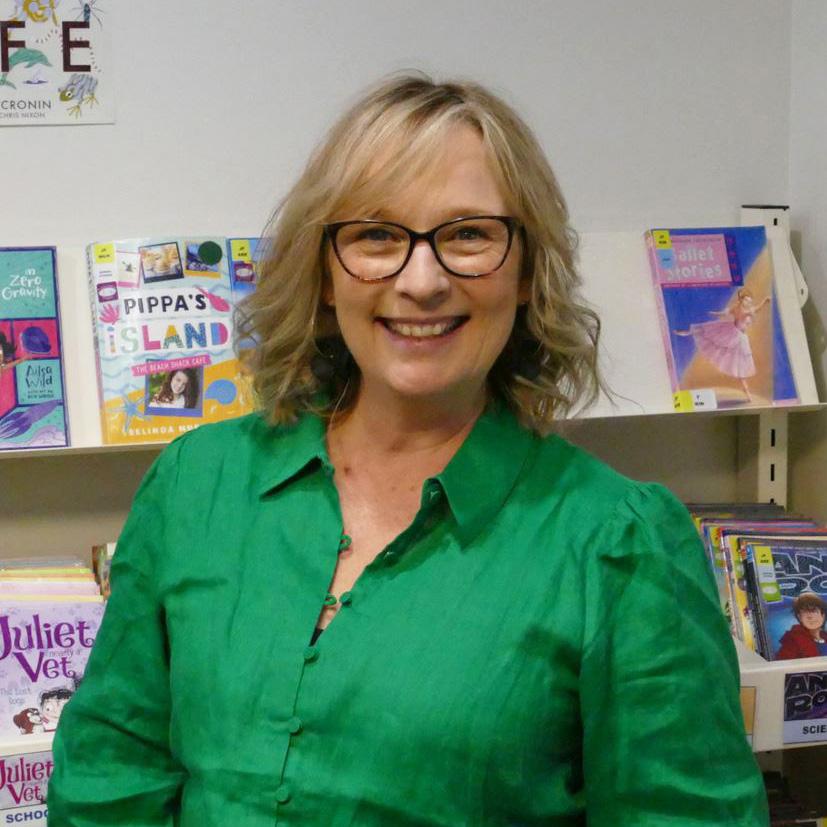
I head up the Junior School and Gawura library. It’s a very busy job. We have 24 timetabled Information Fluency classes each week, three lunchtime duties every day, host a handful of whole-school events over the year, develop dozens of student Library Leaders, provide digital and physical resources to support the whole K–6 curriculum and squeeze in as many other Book Clubs, STEM challenges, reading and creative competitions and interactive displays as we are able. Also being the head of library for Gawura has been an absolute joy and privilege. I have had to learn, unlearn and relearn so much from wise, patient and generous First Nations colleagues, to make the library both a welcoming space for our Aboriginal and Torres Strait Islander students and a place where First Nations histories, cultures, languages and achievements are visible, honoured and celebrated. In consultation with our Elder in Residence, our library team built a First Nations Library (LibGuides), which we have been able to share with other schools. Decolonising a library is an ongoing journey that I think begins with a change of heart, which prompts a change in thinking and (slowly) translates to a change in approaches and systems.
Tara Ball
Head of secondary library services
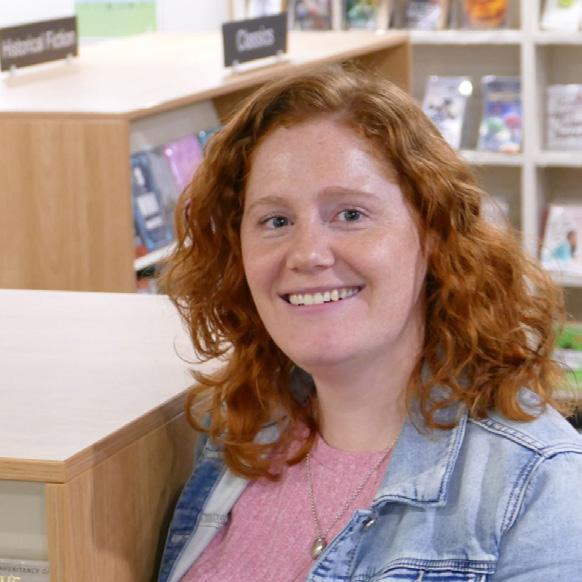
I came to St Andrew’s Cathedral School in 2012 under Elizabeth Greef, and I immediately knew school libraries were the right fit for me. I continued to finish my Master of Information Studies through CSU and, upon graduation, my skills were recognised under a new position within the school as a librarian, differing from both teacher librarians and our library technicians. I work as the library manager, very closely with the head of library, covering the admin side of the role, including ordering, budget, databases, website and supervising our library technicians. I love school library work because of the diversity of the day. Currently, I am working with the Year 7–12 students, so I can shelve, catalogue, supervise lunchtimes, prepare for events, order new books, troubleshoot databases, assist a student with referencing and help students find their next favourite read, all in one day.
Lisa Crocker
Library technician, junior school and Gawura
My first role was as a library assistant at a public library back in the late 80s/ early 90s (before the internet became popular!). I was studying marketing, so my career took a different path, but my love of libraries never left me. A decade later I went back to further study, completing a Master of Applied Science – Library and Information Management, and ended up in a corporate role in knowledge management. I realised my real passion, though, was to work in a more traditional library, which led me to my current role in the Junior School library at St Andrew’s Cathedral School. I have also had the opportunity to work in the Middle School and Senior School libraries, as well as do casual work at other schools. This has allowed me to share ideas, be inspired, collaborate with others and learn from those around me. It has been interesting to see how much children’s literature (and technology) has changed over the years, and I really enjoy being involved in the process of instilling a love of reading in children.
RESEARCH 44 INCITE Magazine | Research
Decolonising a library is an ongoing journey that I think begins with a change of heart, which prompts a change in thinking and (slowly) translates to a change in approaches and systems.
Deborah Bennett
Teacher librarian, junior school and Gawura
I have been a classroom teacher for 20 years teaching Pre-K–4, mostly in an International Baccalaureate school, and I have always valued connecting with the library through the collaborative designing of units of inquiry, the fostering of reading for enjoyment and the wellbeing support for all students. I decided to complete a Master of Education (Librarianship) with CSU, which was so inspiring that I couldn’t wait to make this career change. My current role is teacher librarian for Kindergarten to Year 4, including Gawura. A particular joy for me in this role has been becoming more aware of the amazing world of Australian children’s literature and developing literature-based units of work to enrich teaching and learning programs here at St Andrew’s Cathedral Junior School and Gawura.
Shayne Denford Library technician
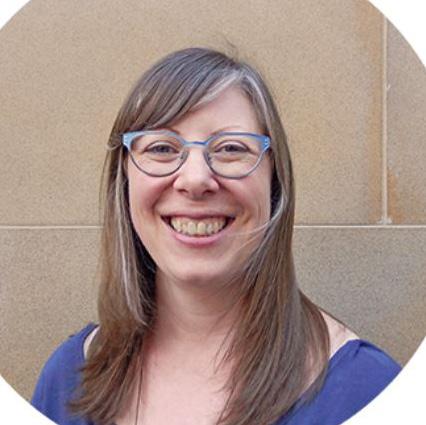
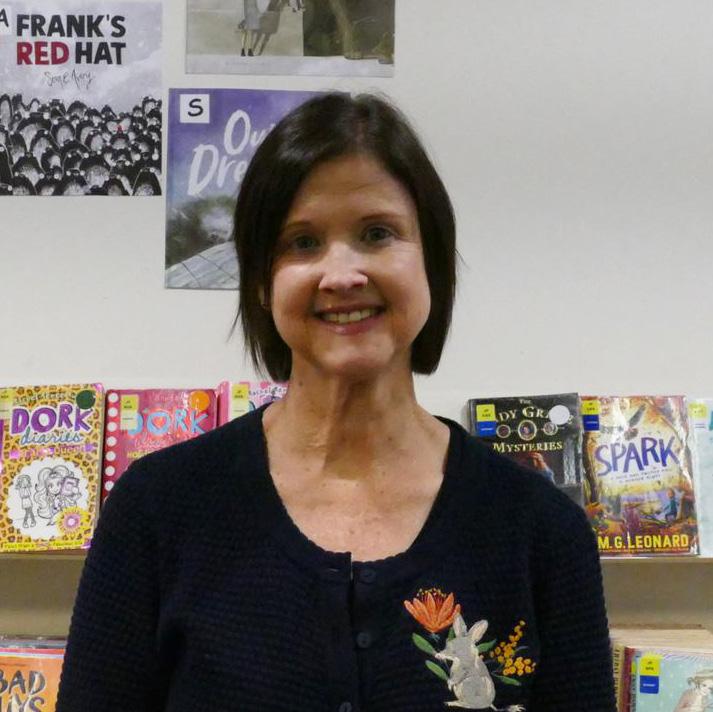
I qualified as a librarian in the pre-internet dark ages of 1994 after completing a Postgraduate Diploma in Information Management (Librarianship) at UNSW. In the 29 years since then I have worked in libraries at various not-for-profit organisations, in the corporate library of a bank and, since 2020, in school libraries. I love the welcoming atmosphere of the school library and find the work stimulating and rewarding, supporting students and being able to work with like-minded colleagues. In our Middle School library, the library technicians process, cover and catalogue new books, create displays, manage circulation duties and provide reader advisory for students. This is the same for our Senior School library, in addition to supervising study periods for the senior students.
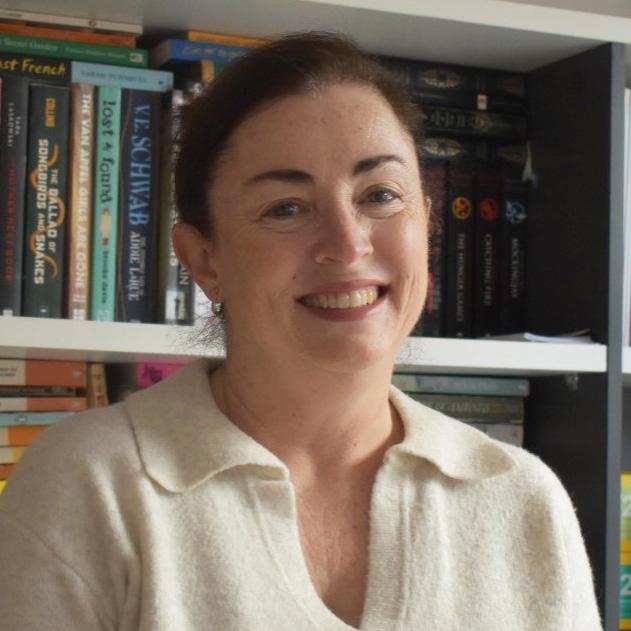
Anne Coates
TAFE diploma (library technician) placement student, St Andrew’s Cathedral School
Spending term two at the Middle and Senior libraries for my TAFE Diploma placement showed the passion and commitment of staff to St Andrew’s Cathedral School students’ literacy and learning, no matter their position within the library. The placement provided an opportunity to gain a deeper understanding and appreciation of the role and work of a school library, apply and learn practical skills, and see trends discussed in class – such as the genrefication of collections – in action. Having undertaken the Diploma course to assist with making a career change into the library sector after many years working for community focused non-profits, the placement was a valuable and rewarding experience, providing industry insights and connections, and building on my recent employment with public libraries.
MORE INFORMATION
Follow us on Instagram @sacslibrary
Email: vituallibrary@sacs.nsw.edu.au
Feature | INCITE Magazine 45
The placement provided an opportunity to gain a deeper understanding and appreciation of the role and work of a school library, apply and learn practical skills, and see trends discussed in class – such as the genrefication of collections – in action.
Raeco is committed to environmental sustainability – it’s in our name RAECO

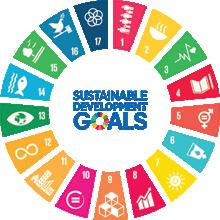
As a global leader in book covering, we’ve spent the last three years developing a fully biodegradable book covering solution.

The result is Bioguard 80 - a specially formulated film that emulates similar properties and applications to Bookguard - with the added benefit of being fully biodegradable, without leaving toxic microplastics.
It makes it easy for you, your team and your visitors to identify which books in your collection are covered in Bioguard 80 .

HAVE YOU TRIED
WORLD’S FIRST
BIODEGRADaBLE
Information & ordering: raeco.com.au
THE
FULLY
BOOK COVERING?
® Our active biodegradable ingredient results in a slight texture to Bioguard 80 . This texture does not affect the level of protection to your book.
This
can
Bioguard 80
FEEL THE DIFFERENCE ® ® ® ® ® 1300 727 231 | support@raeco.com.au | FULLY BIODEGRADABLE NO TOXIC MICROPLASTICS GLOSS FINISH EASY TO APPLY FULLY RECYCLABLE INCLUDING BACKING PAPER WON’T BREAK DOWN ON DISPLAY certified to ASTM 6954 - ASTM 5511 D certified to ISO 14855-1 INDEPENDENT TESTS & CERTIFICATIONS PROVE BIOGUARD 80 COMMENCES BIODEGRADATION
PLACED IN LANDFILL OR COMPOST
means when disposing your book, it
safely be identified as having
covering.
ONLY WHEN


























































 Above Linn T Sunne (IFLA C&YA Section member) presenting at the AFCC. Photo: supplied
Above Linn T Sunne (IFLA C&YA Section member) presenting at the AFCC. Photo: supplied



 Janet Hutchinson Indigenous Literacy Foundation Lifetime volunteer
Janet Hutchinson Indigenous Literacy Foundation Lifetime volunteer

 Lauren Francis New Library Collections Project Librarian City of Melbourne Libraries lauren.francis@melbourne.vic.gov.au
Lauren Francis New Library Collections Project Librarian City of Melbourne Libraries lauren.francis@melbourne.vic.gov.au





 Virginia Barbour Director Open Access Australasia director@oaaustralasia.org
Virginia Barbour Director Open Access Australasia director@oaaustralasia.org
















